musicians
Michael Stipe
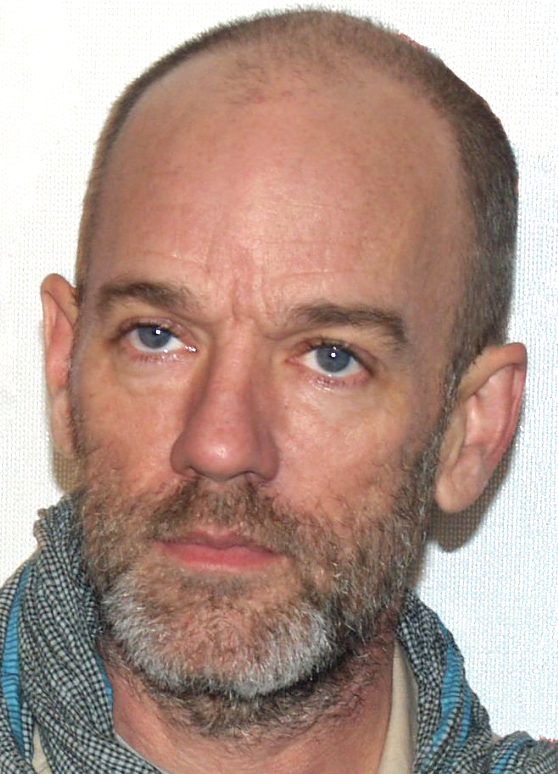
On this day in 1960, musician and film producer John Michael Stipe was born in Decatur, Georgia, into a family of Methodists. His father was in the U.S. Army and the family moved frequently. As a result he was a quiet child, preferring to spend time with his sisters more than with friends. He found his niche in high school, bonding with other students over his passion for punk rock.
After graduation he enrolled at the University of Georgia in Athens to study art and photography, where he met Peter Buck, Bill Berry and Mike Mills. They formed the band R.E.M. in 1980 and released their first album, “Murmur” in 1983. R.E.M. released albums throughout the 1980s and 1990s.
Among their most successful was “Out of Time” (1991), which featured the single “Losing My Religion,” arguably the band’s most well-known song. Despite the title, it’s really not about religion, band members have said. Stipe described it as a song about unrequited love and as a “classic obsession song.” Others have said the phrase is a Southern expression meaning being at wit’s end or at the end of one’s rope. The band broke up amicably in 2011.
Stipe later has focused on film and art. In the late 1990s he started a film company, Single Cell Productions, which released “American Movie” (1999) and “Being John Malkovich” (1999). He has several credentials as a producer, including the irreverent 2004 movie “Saved!” about a Christian high school girl who gets pregnant. The film presents sharp commentary on evangelical Christians and received a lot of backlash from the Religious Right, including Jerry Falwell, who criticized the movie without bothering to see it.
Stipe has also done solo recording work and in 2019 published Michael Stipe: Volume 1, an artful collection of 35 of his photographs whittled down from more than 37,000 in his collection.
He has had intimate relationships with men and women and identifies as “queer” more than gay, he has said. As of this writing in 2019, he lives in New York City with photographer Thomas Dozol.
PHOTO: Stipe at the 2007 Tribeca Film Festival. David Shankbone photo under CC 3.0.
“I’m actually not Buddhist. It’s just that I’m bald and I have a certain demeanor and my voice is really low when I talk. … I was raised Christian, though I’m not Christian either.”
— Stipe, when asked by Rolling Stone about a rumor he was Buddhist (March 3, 2011)
Dave Matthews
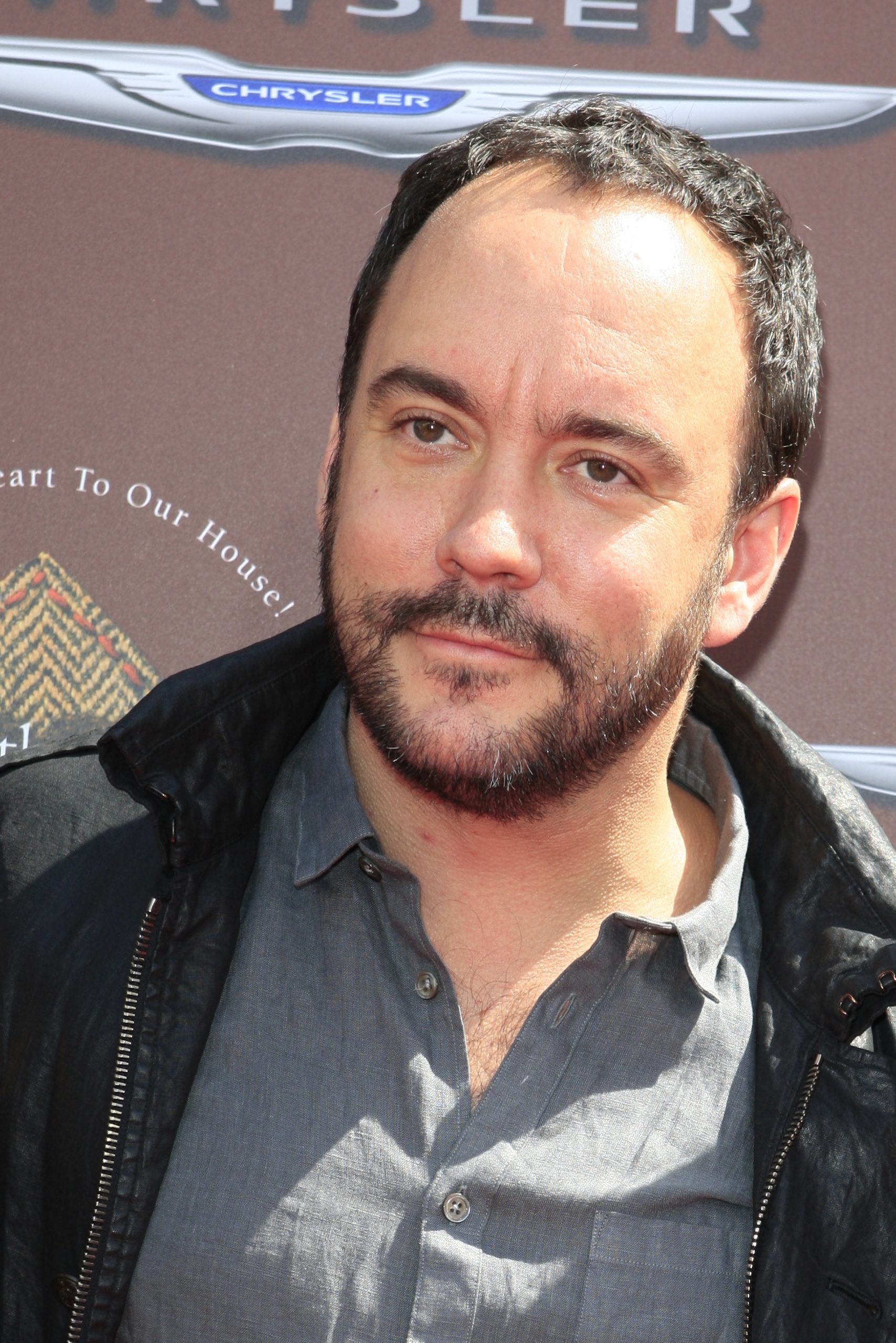
On this date in 1967, David John Matthews was born in Johannesburg, South Africa. After high school he moved to the United States to avoid mandatory service in the South African Army. He moved to Charlottesville, Va., in 1986, where he began to hone his musical talents by playing guitar and singing on stage. In 1991 he formed the Dave Matthews Band, a rock group with jazz influences, along with Carter Beauford, LeRoi Moore, Steffan Lessard, Peter Griesar and Boyd Tinsley.
The Dave Matthews Band has recorded nine studio albums as of this writing and continues to tour extensively. The latest is “Come Tomorrow” (2018). Several live albums have also been released and Matthews released his solo album “Some Devil” in 2003. He and his wife Ashley were married in 2000 and have three children: twins Stella Busina and Grace Ann, born in 2001, and August, born in 2007.
Matthews was raised Quaker but lost his faith in his teens after struggling with the idea that most of his loved ones, including his father, would end up in hell. “It would be safe to say that I’m agnostic,” Matthews said in a 2001 Boston Globe article. He elaborated on his agnostic beliefs in an Oct. 4, 2009 Q TV interview: “I can’t believe, in any way, in a god that cares about me. That makes no sense to me, a god that’s watching me and hoping that I make the right choices. That god is impossible.”
“We owe a faith to the world and to ourselves. We owe a grace and gratitude to things that have brought us here. But I think it’s very ignorant to say, ‘Well, for everything, God has a plan.’ That’s like an excuse. Maybe the real faithful act is to commit to something, to take action, as opposed to saying, ‘Well, everything is in the hand of God.’ ”
— Matthews, Boston Globe interview (March 4, 2001)
Sean Danielsen

On this date in 1982, Sean Danielsen was born in California. He began performing as lead guitarist and vocalist with Smile Empty Soul, an alternative rock band affiliated with Lava Records, in 1998, when he was still a high school student. Danielsen is the band’s primary songwriter. Smile Empty Soul released their popular self-titled album in 2003. Their other albums include “Anxiety” (2005), “Vultures” (2006), and “Consciousness” (2009). Their song “Who I Am” appeared on the “Spiderman 2” (2004) soundtrack.
Smile Empty Soul is a decidedly freethought band. “Religion is just such a big bad part of my life that it’s going to come out [in my music],” Danielsen explained to journalist Jeff Nall, who wrote about Smile Empty Soul, Bad Religion, Greg Graffin and Ani DiFranco in the October 2004 issue of Freethought Today. The song “Every Sunday” on their first album, “Smile Empty Soul” (2003), contains the lyrics, “I don’t want your religions,” and the video for their song “Nowhere Kids” tackles the issue of sexual abuse by priests.
Danielsen’s devoutly religious mother sent him to live at a Christian commune in an abandoned summer camp in Maine for three years, beginning when he was only 7. “My mom lets religion rule her life and I feel religion is a kind of safety blanket. If you’re afraid, you cling onto religion, and I just don’t want to be like that,” Danielsen said in a June 25, 2003 interview with MTV.
In an Oct. 1, 2003 interview with lasvegascitylife.com, Danielsen said that his mother “was blown away by how much the album attacks her beliefs. She just couldn’t understand it at first. I just had to explain to her that this is how I believe, that I have a whole different set than hers and this is how I deal with them.”
Photo by Jax 0677 under CC 4.0
* The number of deaths attributable to religion in the quote below is in dispute. One example is here regarding Christianity.
“I’m definitely against all organized religion just because, when you really look at it, organized religion has caused most of the deaths in the history of this planet. Most of the wars were fought over organized religion.”
— Danielsen to journalist Jeff Nall, quoted in Freethought Today (October 2004)
David Bazan
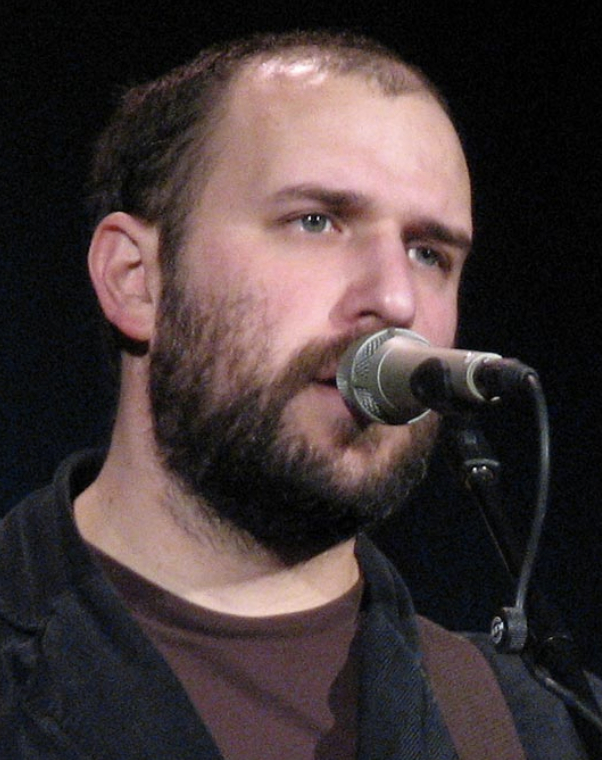
On this date in 1976, indie rock singer and songwriter David Bazan was born in Seattle. Bazan grew up with a passion for music that stemmed from influential figures in his life, such as his father who was a music pastor. Consequently, he started his singer-songwriter career by performing for church youth groups. Bazan spent his childhood in Christian schools and graduated from Northwest University, a Pentecostal college in Kirkland, Wash.
Bazan began questioning the logic of his Christian experience around eighth or ninth grade, but did not truly begin to inquire into his faith until his early 20s. “Growing up, Christianity didn’t feel oppressive for the most part, because it was filtered through my parents. They were and are so sincere, and I saw in them a really pure expression of unconditional love and service. Once I stepped away, I could see the oppression of it,” he said in the Chicago Reader (July 30, 2009). The article was subtitled “At the Cornerstone Christian rock festival, a fallen evangelical returns to sing about why he broke up with God.”
Unsatisfied with the hardcore alternative music scene in Seattle, Bazan formed his own band, Pedro the Lion, in 1995 while still attending Northwest. The music produced by the band followed a path of a struggling believer becoming a restless one, which began to attract a strong secular fan base. His debut album as a solo artist, “Curse Your Branches,” was released in 2009. The album is an autobiographical depiction of the process Bazan went through contemplating his faith. The opening song is set in the Garden of Eden.
During the summer of 2009, he returned to the Cornerstone stage to perform his new music explaining why he is unable to continue a relationship with God. His other prominent works include “Blanco” (2016), “Dark Sacred Night” (2016) and “Care” (2017).
PHOTO: Bazan performing in Sweden in 2008; Håkan Henriksson photo. GNU 1.2
“One of the interesting parts about Christianity, at least the way that I experienced it, was that you are in a sense responsible for this whole system of thought and belief that you literally don’t have a chance to investigate thoroughly. When you do come in contact with certain bits of information for the first time, it’s not like, ‘Hey, check this out. See what you think. Reject it or accept it.’ It’s always that you’re discovering this system that you’ve already signed on the dotted line affirming.”
— Bazan interview on Busted Halo, a Catholic website (April 15, 2010)
Larry Adler
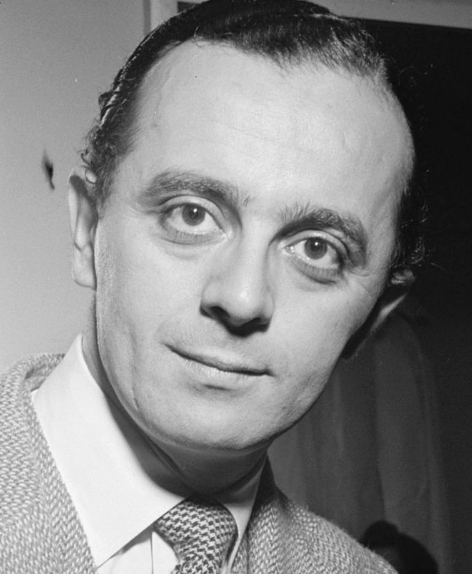
On this date in 1914, musician and composer Lawrence Cecil Adler was born in Baltimore to immigrant Russian parents Sadie (Hack) and Louis Adler. He grew up listening to religious music and at age 10 became the youngest cantor in Baltimore.
Dismissed from the prestigious Peabody Conservatory of Music for being “incorrigible, untalented, and entirely lacking in ear,” he learned to play the piano on his own as well as a harmonica the piano store threw in as a bonus. The latter, which Adler called a mouth organ, would bring him fame. A triumph outside the synagogue was winning the state harmonica championship in 1927 by playing Beethoven’s “Minuet in G.”
Running away from home to New York, he entertained between movies at theaters and had parts in vaudeville and the Ziegfeld revue “Smile” and other shows. In 1934 he impressed George Gershwin by playing the composer’s “Rhapsody in Blue.” (His 2001 Washington Post obituary said Adler “was credited with elevating the wheezy favorite of campfire musicians and cowpokes into a respected instrument.”)
He became especially popular in the United Kingdom, where harmonica sales skyrocketed and 300,000 people joined fan clubs. His performances included transcriptions of pieces for other instruments, such as violin concertos by Bach and Vivaldi. He played his arrangement of Vivaldi’s “Violin Concerto in A Minor” with the Sydney Symphony. He and dancer Paul Draper formed an act in the 1940s and toured internationally, performing individually, then together. One popular number was Gershwin’s “I Got Rhythm.”
His career suffered a huge setback during the “Red scare” that started after World War II. As a supporter of Progressive Party candidate Henry A. Wallace in the 1948 presidential race, he was accused of having Communist sympathies by the wife of a Time magazine editor. A jury deadlocked on his libel suit against the woman and the publicity cost him many engagements. He moved to England and never again lived in the U.S.
He married model Eileen Walser in 1938 and they divorced in 1959 after having three children: Carole, Peter and Wendy. He married writer and academic Sally Cline in 1967, divorcing in 1976 after having a daughter, Marmoset Katelyn. Marmoset established a scholarship at the Royal Academy of Music after his death. The scholarship did not specify a specific instrument, she said, because “it’s so unlikely that hordes of mouth organists will apply to the academy.” (The Independent, Nov. 2, 2001)
Adler played with several generations of renowned musicians. Beatles producer George Martin commemorated Adler’s 80th birthday with the release of “The Glory of Gershwin,” in which he performed with Sting, Cher, Elton John, Meat Loaf, Carly Simon, Sinéad O’Connor, Jon Bon Jovi and numerous others.
Concerts to support the album showed Adler was also a competent pianist. He opened each performance with Gershwin’s “Summertime,” playing piano and harmonica simultaneously. The release went gold in 1994.
Adler died of cancer at age 87 in St. Thomas’ Hospital, London, where his cremated remains are interred. (D. 2001)
PHOTO: Adler in New York City in 1947 at age 33; public domain photo by William P. Gottlieb.
“In accordance with Larry’s wishes — he was an inveterate atheist who refused to recognise the supernatural in any shape or form — there were no religious observances.”
— British journalist Richard Ingrams, commenting on Adler's death, The Observer (Aug. 12, 2001)
Momus

On this date in 1960, musician and writer Nick Currie, now better known as Momus, was born in Paisley, Scotland. Momus is frequently called the most underrated man in pop music. He has released dozens of albums over his 30-plus years as an active musician. One of Momus’ well-known albums, “Stars Forever” (1999), is a 30-song album he created by writing an original song about each of 30 people who had given him a commission.
He has written three books: The Book of Jokes: A Novel by Momus (2009), Solution 11-167: The Book of Scotlands (2010), which presents 156 Scotlands in parallel worlds, and Solution 214-238: The Book of Japans (2011), which has a similar concept.
Momus has also written commentary on culture for Wired magazine and many other news and entertainment sources. In 1991 he reworded Andy Warhol’s famous 15 minutes of fame quote into, “In the future everyone will be famous for 15 people.” In 1997 he contracted acanthamoeba keratitis in his right eye due to a contact lens mishap. Although his sight improved after surgery, he has suffered lingering effects from the infection ever since.
THE ONION A.V. CLUB: Is there a God?
MOMUS: Uh, I’m an atheist.— interview, Sept. 6, 2000
Henry Rollins
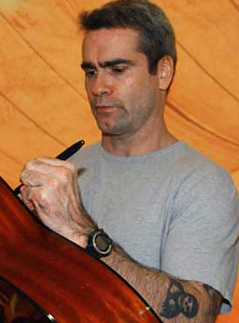
On this date in 1961, Henry Rollins (né Henry Lawrence Garfield) was born in Washington, D.C. After high school, Rollins worked on the crew of several D.C. punk bands including Teen Idles. He sometimes filled in for absent lead singers. By 1980, talk of his vocal ability had spread around the D.C. punk rock scene. Rollins became the lead vocalist and lyricist of a band called State of Alert. He was promoted to manager of an ice cream store in Georgetown, which he used to fund his musical hobby.
Rollins became a huge fan of the punk band Black Flag, exchanging letters with its bassist and attending as many concerts as he could and even putting the band up in his parents’ home during an East Coast tour. The band was won over by Rollins’ vocal talent and stage presence. He joined Black Flag as its new frontman and lead singer, quit his manager position, changed his name from Garfield to Rollins and moved to Los Angeles.
Black Flag disbanded in 1986, but Rollins was already touring successfully as a solo artist. He released three solo albums in 1987: Hot Animal Machine, with guitarist Chris Haskett, Drive by Shooting and Big Ugly Mouth. In that same year, Rollins assembled an alternative hard rock group called Rollins Band, active until 2003. Their first chart-topping album was The End of Silence (1992). In 2000, Rollins Band was 47 on VH1’s list of 100 Greatest Artists of Hard Rock. Rollins won a Grammy Award in 1995 for Best Spoken Word Album for Get in the Van: On the Road with Black Flag, a recording of Rollins reading his memoir of the same title.
Rollins has appeared on numerous television series, including MTV’s “Oddville,” (1997), “Batman Beyond” (2001), “The Henry Rollins Show” (2006-2007) and “Sons of Anarchy” (2009). He has authored several books, including a trilogy based on his travels called Black Coffee Blues (1992). He has also appeared in over a dozen films, including “Heat” (1995) with Al Pacino, “Lost Highway” (1997) with Bill Pullman, “Jackass The Movie” (2002) and “Jackass The Movie Two” (2006). Rollins is an activist for gay and human rights. An outspoken war critic, he is strongly supportive of troops.
Rollins said on SIRIUS XM radio: “I’m sure there’s gay people who are Catholics. How do they reconcile that? How do they reconcile that somewhere in the paperwork their religion doesn’t like them?” (“Ron & Fez on The Virus,” video, date unknown). On the same show, Rollins reacted to the expulsion of the child of two lesbians from a Catholic preschool: “When you encounter that kind of hatred, leave. … I was happy that the kid got expelled because maybe the kid has a chance now. They can be put into a place without discrimination, that doesn’t eventually make part of the curriculum to exclude people, like homosexuals.”
Rollins occasionally used “The Henry Rollins Show” to passionately critique religion: “Christian fundamentalists see their fingers being pulled off the steering wheel as their oppressive shackles are more and more being seen as fear-based nonsense” (video, date unknown). Friends with actor William Shatner, he contributed to the mostly secular “Shatner Claus: The Christmas Album” in 2018.
PHOTO: Rollins signing an airman’s guitar during a 2003 USO tour in Iraq.
“In the theory of evolution there is no talk of God and no Bibles are used. They’re not looking for higher powers, extraterrestrials, or anything else that could be found in the science fiction section, because they are not dealing with fiction.”
— Henry Rollins, on an episode of "The Henry Rollins Show” (date unknown)
Brian Cox
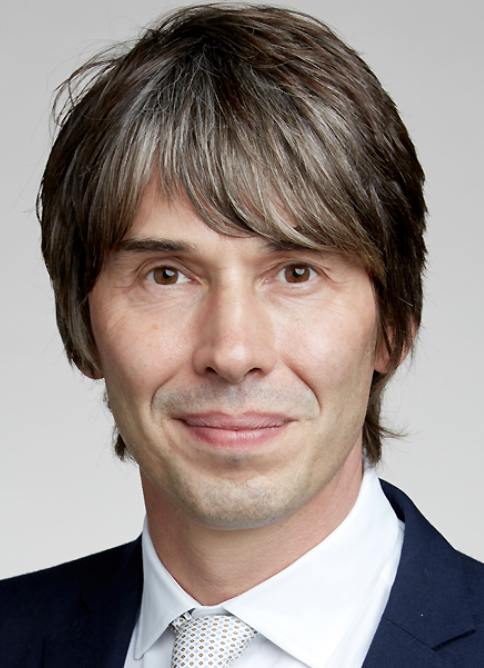
On this date in 1968, Brian Edward Cox was born in Lancashire, England. After completing his secondary education, Cox joined the rock band Dare as a keyboardist. Following the band’s breakup, Cox enrolled at the University of Manchester to study physics. He continued his career in music, playing with the pop band D:Ream, while receiving his B.Sc. and M.Phil degrees. D:Ream had several hits on the UK charts, including “Things Can Only Get Better,” a No. 1 hit.
As of this writing he works as a particle physicist at the University of Manchester and at the Large Hadron Collider near Geneva, Switzerland. He married Gia Milinovich in 2003 and they have one child. He was elected in 2016 as a Fellow of the Royal Society, the UK’s national academy of sciences.
Cox is best known for his science outreach to the general public and has appeared on numerous BBC television and radio programs. Cox also lectures widely, has given several TED talks, and has co-authored several books about physics, including 2009’s Why Does E=mc²? (And Why Should We Care?).
Cox is a strong advocate for science education and government funding of scientific research. Asked by the Guardian (March 6, 2010) if he has “ever believed in God,” Cox replied, “No! I was sent to Sunday school for a few weeks but I didn’t like getting up on Sunday mornings. But some of my friends are religious. I don’t have a strong view on religion, other than illogical religion. Young earth creationism, for example: bollocks.”
Cox says the label of atheist does not apply to him because there is so much that is unknowable. His story “The Large Hadron Collider: A Scientific Creation Story” was one of 42 included in “The Atheist’s Guide to Christmas” in 2009. From the essay: “When the pattern of atoms known as you ceases to be, the building blocks will return to the voids of space and in a billion years or more they may take their place in another structure so beautiful that a future mind may perceive it to be the work of a god.”
PHOTO: The Royal Society
“So for me, the idea I would be able to have an entertaining and enjoyable afternoon discussing with people with whom I suppose I have to say I disagree at the most fundamental level, because I don’t have a particular faith, or any faith in fact – however, I think that difference of opinion and view of the world is to be celebrated and explored.”
— "Professor Brian Cox condemns 'toxic' rows between science and religion," Christian Today (Sept. 9, 2016)
Andrew Hozier-Byrne

On this date in 1990, singer-songwriter Andrew Hozier-Byrne, known professionally as Hozier, was born in Bray, County Wicklow, Ireland. The son of a blues musician, Hozier grew up around music, joining a band when he was 15. Hozier began a degree in music at Trinity College in Dublin but dropped out to record for Universal Music. In 2009 he toured internationally with the Irish choral group Anúna.
Hozier’s first solo EP, “Take Me to Church,” was released in 2013. The music video for the title track, which addresses gay discrimination in Russia, went viral: “Take me to church / I’ll worship like a dog at the shrine of your lies / I’ll tell you my sins and you can sharpen your knife.” Hozier spoke of the song in an interview with Buzzworthy: “It’s about humanity at its most natural, and I guess the song is very much about sexuality, about the sexual act itself. It’s also a little bit of a tongue-in-cheek swipe at, say, the Church and organizations that would undermine humanity at its most natural by pontificating over things like sexual orientation or natural humanity.” (March 14, 2014.)
Though raised a Quaker by Catholic apostates, Hozier rejects the notion of faith. Instead, he finds absolution in creating the soul, R&B and blues music of his childhood. Hozier’s second EP, “From Eden,” appeared in 2014. In 2018 he released an EP titled “Nina Cried Power,” featuring the title track as a single. He released his second album, “Wasteland, Baby!,” in March 2019. It debuted atop the U.S. Billboard 200.
“I still wouldn’t define myself as an atheist — it’s too absolute. But I don’t have any faith. I think faith is an absurd thing but I’m OK with that. There are no answers because the universe never asked a question in the first place.”
— Hozier-Byrne, interview with The Evening Standard (June 6, 2014)
Elton John
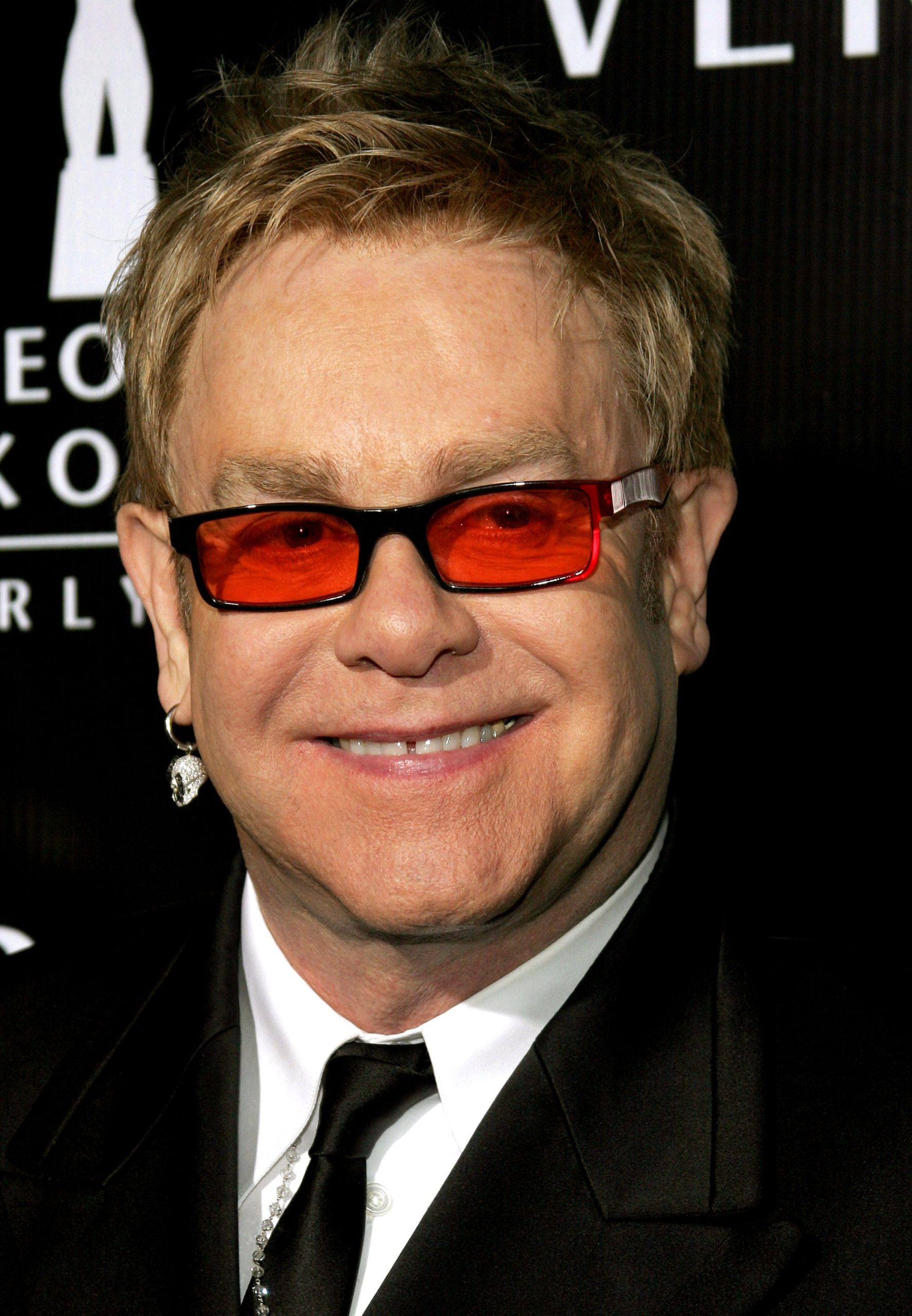
On this date in 1947, Elton John (né Reginald Kenneth Dwight) was born in Pinner, England. By age 4 was playing piano and reportedly could play any melody he heard. He dropped out of the Royal Academy of Music in London in 1961 to form his first band, Bluesology, which performed Ray Charles and Jim Reeves ballads, among others. He acquired his stage name from two of the musicians in Bluesology, Long John Baldry and Elton Dean.
After leaving Bluesology in 1966, he met Bernie Taupin, a lyricist with whom he would form a lifelong musical partnership. According to John’s website, Taupin could write lyrics in less than an hour and John would compose the music in half an hour. They have collaborated on more than 30 albums. John has sold more than 300 million records, making him one of the world’s best-selling artists.
His first major hit, “Your Song,” made the U.S. Top Ten charts in 1970. He went on to have other major hits, including “Rocket Man” (1972) and “Honky Cat” (1972). He created Rocket Records in 1974, the label under which he released the hits “Daniel” and “Crocodile Rock.” In that same year he collaborated with his friend John Lennon at Lennon’s final public concert in Madison Square Garden. Deemed the most successful pop artist of the 1970s, he often released at least two albums a year.
The singer battled bulimia and drug and alcohol addictions in the 1970s and 1980s. Just as his popularity waned, his band experienced a comeback at a free concert they hosted in Central Park. He produced chart-toppers in the 1980s such as “I Guess That’s Why They Call It the Blues” (1983) and “I’m Still Standing” (1983). He experienced a health scare in the late 1980s with potentially cancerous nodules affecting his vocal cords. This brush with illness helped convince him to take care of his health, fight off his addictions and become a generous philanthropist. In 1993 he formed the Elton John AIDS Foundation.
His domestic relationship with David Furnish, a former advertising executive and current filmmaker, started in 1993. They were married in 2014 and have two sons, Zachary and Elijah, born to a surrogate mother.
He was inducted into the Rock and Roll Hall of Fame in 1994, wrote songs for “The Lion King” and won an Academy Award for the “Lion King” song “Can You Feel the Love Tonight.” He won Tony Awards for his work on the theatrical productions of “The Lion King” (1998) and “Aida” (2000). His single, “Candle in the Wind,” honoring the tragic death of his friend Princess Diana, broke all records, and he donated proceeds to Diana’s favorite charities.
As an “out” gay man, he rejects organized religion largely because “religion has always tried to turn hatred toward gay people. Religion promotes the hatred and spite against gays.” (Observer Monthly magazine, November 2006.) He was knighted in 1998 by Queen Elizabeth II for his contributions to music and fundraising for AIDS.
“From my point of view, I would ban religion completely. The reality is that organized religion doesn’t seem to work. It turns people into hateful lemmings and it’s not really compassionate.”
— Elton John, Observer Music Monthly interview (November 2006)
Jack Lawrence
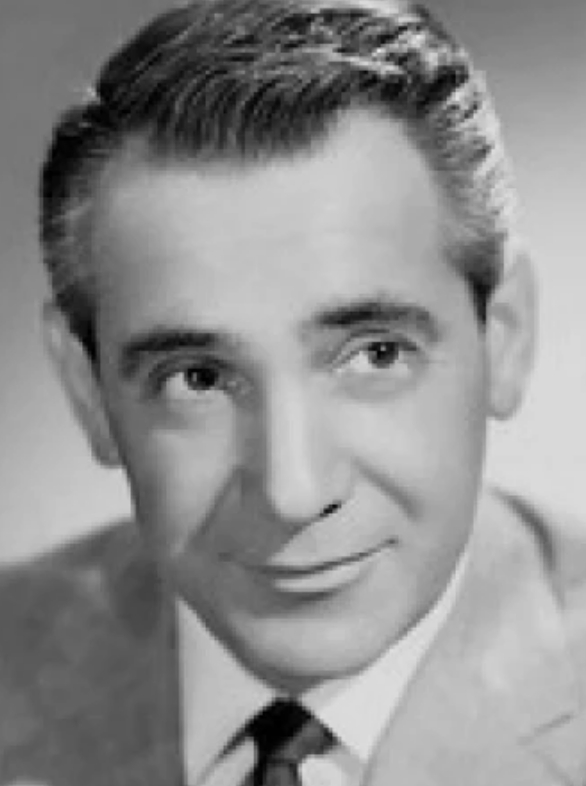
On this date in 1912, songwriter Jack Lawrence (né Jacob Louis Schwartz) was born in Brooklyn, N.Y., the third of four sons of Jewish parents Fruma (Goldman) and Beryl Cherniafsky, first cousins who emigrated from Ukraine in 1902. After graduating from Thomas Jefferson High School, he enrolled in the First Institute of Podiatry (now the New York College of Podiatric Medicine), due mostly to parental pressure and earned a doctoral degree in 1932, the same year his first song (“Play, Fiddle, Play”) was published.
Publication of his song “convinced him that his career could rise higher than the human foot.” (New York Times, March 18, 2009) He joined ASCAP, the American Society of Composers, Authors and Publishers, at age 20. Primarily a lyricist, he would on occasion compose and vocalize. Many of his songs became American standards and he was inducted into the Songwriters Hall of Fame in 1975.
At times in the 1930s, he toured the eastern seaboard with Songwriters on Parade, a revue featuring various line-ups of tunesmiths. He served in the Coast Guard and Merchant Marine during World War II. Hollywood beckoned after the war. He wrote songs for a number of movies, including “Hold My Hand,” featured in “Susan Slept Here.” It was nominated for the 1954 Best Song Oscar.
“If I Didn’t Care,” for which he wrote lyrics and music, in 1939 became the Ink Spots’ first recording to hit the U.S. pop charts and went on to sell over 19 million copies. Much later it played over the opening credits in the 1994 film “The Shawshank Redemption.” “All or Nothing at All,” with Arthur Altman, topped the charts in 1943 for Frank Sinatra, accompanied by the Harry James Orchestra.
Lawrence wrote “Linda” for his lawyer Lee Eastman’s daughter, who would marry Paul McCartney in 1969. It was a 1947 hit for Buddy Clark. Other highlights from the Lawrence oeuvre include “Tenderly” (1947), which became a hit for Sarah Vaughan, Nat King Cole, Rosemary Clooney and pianist Art Tatum, “Sunrise Serenade” for Glenn Miller, “Sleepy Lagoon” for Harry James and The Platters and numerous others.
He was the longtime intimate companion of Walter David Myden, a psychologist and social worker, whose death in 1975 of a heart attack hit Lawrence hard. He then met Richard Debnam, who had retired as a Broadway dancer (“Seventeen” and “Damn Yankees”) and an Ice Follies performer.
In 1979 in his mid-60s, he adopted Debnam, 20 years his junior. Before same-sex marriage became legal, it was not uncommon for gay couples to pursue adoption as a legal protection for inheritance and other purposes. They bought two theaters in New York City and co-produced the critically acclaimed Broadway revue “Lena Horne: The Lady and Her Music” in 1981.
Lawrence’s 2004 memoir They All Sang My Songs is dedicated: “For Richard, who helped me through the night.” He scoffed in that memoir at Jewish pride in seeing themselves as God’s Chosen People. “Chosen for what? Five thousand years of persecution, diaspora, holocaust, and anti-Semitism?” He berated Hasidic and Southern Baptist bigots, Muslim suicide bombers and religions which assign women second-class status.
“Religion through the centuries has always been divisive, has always resulted in blood wars, has always pitted sects against each other,” Lawrence wrote. “I believe in being part of my little world, my community, of giving back some of what the world has blessed me with.” Then he mentioned helping rebuild his local Mark Twain Library, expanding the hospital in Danbury, Conn., and acquiring open acreage for a land trust. “I believe all of that is my religion.”
Lawrence fractured his pelvis in a fall at home in West Redding, Conn., and died at age 96 of renal failure and complications from the fall. He was collaborating on a new song with Quincy Jones titled “Nostalgia” at the time. (D. 2009)
“When I am asked what religion I am, I don’t hesitate to answer. I don’t believe in religion.”
— "They All Sang My Songs" (2004)
Pete Seeger
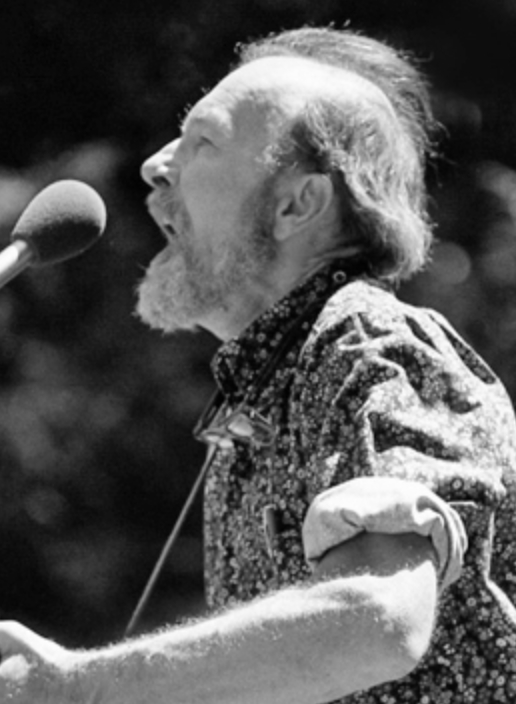
On this date in 1919, Peter Seeger was born in Manhattan to musicologist Charles Seeger and concert violinist Constance de Dyver Edson Seeger. Best known for his legendary contributions to folk music, he wrote such songs as “If I Had A Hammer” and the anti-war song “Where Have All the Flowers Gone.” He popularized the German folk song “Die Gedanken Sind Frei,” which celebrates freedom of thought. He was committed to social activism throughout his entire life, lending his music and his voice to the civil rights movement, anti-war efforts and the environment.
Seeger was exposed to folk music early on, as his father and stepmother collected and transcribed rural American folk music. He attended Harvard University with the intention of becoming a journalist but dropped out after two years and moved to New York City. He began to work with other folk performers and his career was launched.
At age 20 Seeger married Toshi-Aline Öta, with whom he had four children. Due to his affiliation with the Communist Party in the 1940s, he was summoned before the House Un-American Activities Committee in 1953 and indicted for contempt of Congress in 1957, though the indictment was overturned a year later. In his testimony, he said, “I am not going to answer any questions as to my association, my philosophical or religious beliefs or my political beliefs, or how I voted in any election, or any of these private affairs. I think these are very improper questions for any American to be asked, especially under such compulsion as this.”
Seeger continued to write music and perform around the world into the 21st century. In 1972 he was inducted into the Songwriters Hall of Fame. He received a Lifetime Achievement Award in 1993. In 1994 he was honored by the Kennedy Center. He was also awarded the National Medal of Arts that same year. In 1996 he was inducted into the Rock and Roll Hall of Fame under the category of Early Influences.
When asked about his religious views in a Beliefnet interview (March 16, 2007), Seeger described himself as a pantheist, saying, “I feel most spiritual when I’m out in the woods. I feel part of nature. Or looking up at the stars. [I used to say] I was an atheist. Now I say, it’s all according to your definition of God.” (D. 2014)
PHOTO: Seeger performing in 1978; Brian McMillen photo (cropped) under CC 4.0.
Give Me That Old Time Religion
(Pete Seeger)
Give me that old time religion
Give me that old time religion
Give me that old time religion
It’s good enough for me.
We will pray with Aphrodite,
We will pray with Aphrodite,
She wears that see-through nightie,
And it’s good enough for me.
We will pray with Zarathustra,
We’ll pray just like we use ta,
I’m a Zarathustra booster,
And it’s good enough for me.
We will pray with those Egyptians,
Build pyramids to put our crypts in,
Cover subways with inscriptions,
And it’s good enough for me.
We will pray with those old druids,
They drink fermented fluids,
Waltzing naked though the woo-ids,
And it’s good enough for me.
We do dances to bring water,
Prepare animals for slaughter,
Sacrifice our sons and daughters,
And it’s good enough for me.
I’ll arise at early morning,
When my Lord gives me the warning,
That the solar age is dawning,
And it’s good enough for me.
“I leaf through [the bible] quite often — if only to shake my head in disgust. I quote Leviticus to people who think that every word in the Bible is absolutely gospel and you need to obey every word. In Leviticus it says you must kill a bull if you’re going to really love God. And you must kill it in a certain way, or else you will be killed.”
— Seeger interview, Beliefnet (March 16, 2007)
Billy Joel
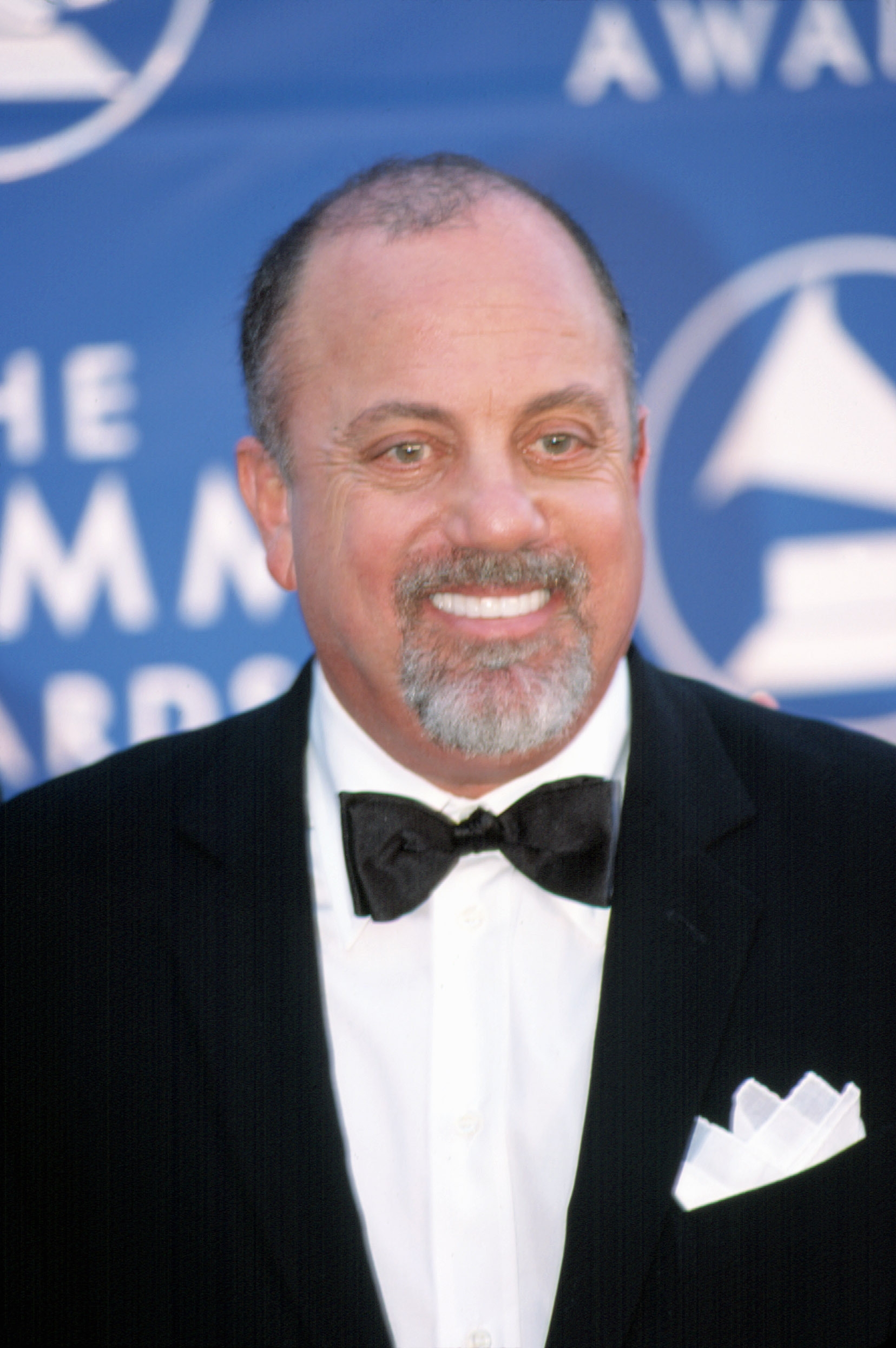
On this date in 1949, William Martin “Billy” Joel was born in the Bronx, N.Y. Joel grew up on Long Island, where he began to play piano as a young child. He joined his first band, the Echoes, as a teenager, and gained a reputation for musical performance. His musical career started in high school when he joined a popular local band called the Hassles. Joel never graduated from high school because of the time he dedicated to his musical career.
He recorded his first two albums, “The Hassles” and “Hour of the Wolf” with the Hassles, before striking out on his own. After becoming dissatisfied with Family Productions — the label that produced his first solo album, “Cold Spring Harbor” — Joel moved to Los Angeles where he worked at piano bars before signing with Columbia Records in 1973. That year, Joel recorded his breakout album, “Piano Man.” The single, “Piano Man,” became Joel’s first hit, making it to number 20 on the charts.
Joel wrote and performed pop and rock music in a variety of styles and on a variety of subjects throughout the 1970s and 1980s, with many hits including “Just The Way You Are” and “Only the Good Die Young” on 1977’s “The Stranger,” and “Uptown Girl” on the album “An Innocent Man” (1983). “Uptown Girl” was famously written about his then-girlfriend, model Christie Brinkley. The two married in 1985, and their daughter, Alexa Ray Joel, was born later that same year. Brinkley and Joel divorced in 1994. Alexa has followed in her father’s footsteps as a pianist, singer and songwriter. In 1993 he turned to classical composition and performance and has not published pop songs since then.
Joel has won six Grammys: Record of the Year and Song of the Year for “Just the Way You Are” (1978), Album of the Year and Best Pop Vocal Performance Male for “52nd Street” (1979), Best Pop Vocal Performance Male for “Glass Houses” (1980), and in 1991 received the Grammy Legend honor. Joel received numerous Grammy nominations between 1978 and 2002. He was inducted into the Songwriters Hall of Fame in 1992 and the Rock and Roll Hall of Fame in 1999.
Howard Stern: Are you the type of guy that believes in karma and things like that?
Billy Joel: Yes … well, not in the religious or spiritual sense, I just, you know, that’s how things seem to work out.
Stern: Are you religious, do you believe in a God?
Joel: No.
Stern: You don’t.
Joel: I’m an atheist.— Joel interview on “The Howard Stern Show" (Nov. 16, 2010)
Brian Eno
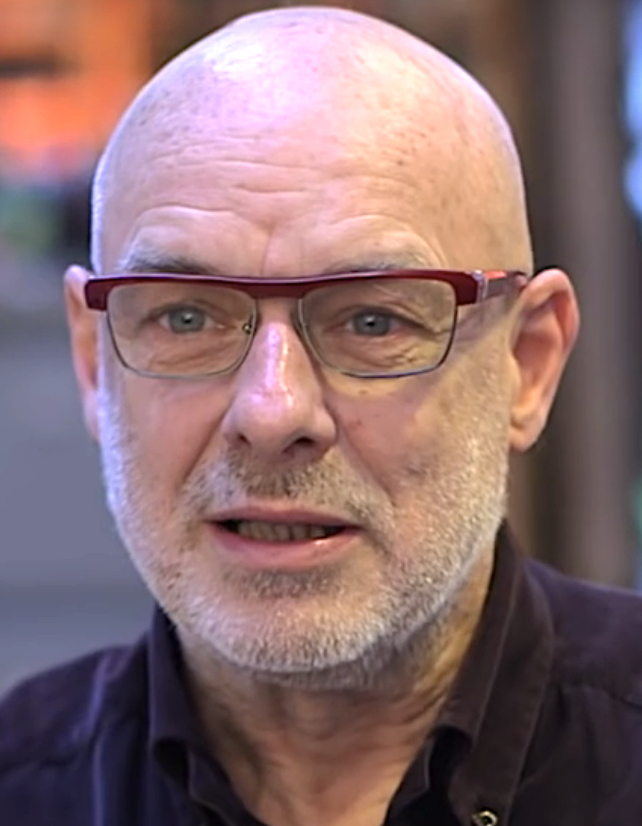
On this date in 1948, Brian Peter George Eno was born in Woodbridge, England, and grew up in rural Suffolk. He graduated from the Winchester School of Art in 1969, where he studied painting. Eno felt that his work was influenced by avant-garde music, but did not go into music because he didn’t play an instrument.
He did work with sound by using cassette tapes and synthesizers, and in 1971 he joined the group Roxy Music, where he manipulated sound and sang backup. Eno’s on-stage garb in the early portion of his career was influential on the growing glam rock scene. After Eno left Roxy, he went on to record several solo albums.
In 1975 he developed the idea of ambient music, which was designed to blend with the surroundings. Eno has worked as a producer on many albums, including several albums for both U2 and Coldplay and one collaboration with Paul Simon. He also works with generative music, or music that is created according to a rule, for example a computer program.
His 2006 work “77 Million Paintings” combined generative music with generative video for a viewing experience that will be different every time. Eno created the score for Peter Jackson’s 2009 film “The Lovely Bones.” He continues to compose and record imaginative music as of this writing in 2019. Eno’s “Reflection” (2017), an album of ambient, generative music, was nominated for a Grammy at 2018’s 60th Grammy Awards ceremony.
Eno referred to himself in a 2007 BBC interview about “77 Million Paintings” as “kind of an evangelical atheist, actually.” In an interview with FACT magazine (Aug. 4, 2012), he compared his work to religion: “Religion gives people a chance to surrender. And I think part of what happens to people when they come into one of my shows is that they practise this feeling of surrendering.”
In 1967 at age 18 he married Sarah Grenville and they had a daughter that year. After divorcing, he married his manager Anthea Norman-Taylor in 1988. They have two daughters, Irial and Darla.
“Basically, Abrahamic religion belongs to the Middle Ages, and we’re moving beyond that now. We’re moving beyond wanting religion to do things it used to do. It used to have an explanatory role, but science has taken that place. It used to be the main source of beauty and awe, but art has taken that role. It used to be the main source of sanctions, but law has taken that role. What remains is what primitive people use it for – consolation and community-building.”
— Eno interview with Jules Evans, History of Emotions Blog (June 19, 2013)
Kerry King

On this date in 1964, iconoclast and rock musician Kerry Ray King was born in Los Angeles, where he grew up with two older sisters. His father was an aircraft parts inspector, and his mother worked for a phone company. He started playing guitar at age 13. The first song he learned was Ted Nugent’s “Cat Scratch Fever.” He was enamored with artists such as Judas Priest and Eddie Van Halen.
Although they were not religious, his parents suggested, when he was in grade school, that he should check out Sunday school. “[L]ike a week into it, I went to my parents. I’m, like, ‘I don’t think I want to go to this anymore.’ Even that little kid knew it was a bunch of dog shit.” (Consequence.net, June 4, 2024)
King excelled academically and won an award as his school’s top math student in junior high. Then puberty kicked in. “I was really good at school until I discovered girls, and then it was all over. It’s a good thing I didn’t plan on college or anything because I probably would have failed miserably. I was such a smart kid, but once high school came around and girls were in the picture, the grades went south.” (Metal Hammer, Jan. 2, 2019)
In 1981 he formed a “thrash metal” group called Slayer with Jeff Hanneman, Dave Lombardo and Tom Araya. The group disbanded in 2019 and announced several reunion shows in early 2024. Slayer released 12 studio and three live albums, a box set, six music videos and a cover album. Four of its studio albums went gold in the U.S. It earned five Grammy nominations, winning two for songs from the album “Christ Illusion” in 2006.
King’s debut solo album “From Hell I Rise” was released in May 2024. He says he doesn’t believe in God or the devil and calls himself an atheist who thinks religion is “the biggest lie among humanity for centuries.” (Blabbermouth.net, June 25, 2024) He has been divorced twice and has a daughter named Shyanne Kymberlee with his first wife. He is married to Ayesha King, a former model and aerial performer who is also an atheist.
His political views don’t fit neatly into any category. In 2024 he said he was angry about the Supreme Court overturning Roe v. Wade but in the past has praised the archconservative Rush Limbaugh, agreeing that “penalizing the achievers” was poor policy. He said he wouldn’t vote for Bill Clinton, supported a flat tax and criticized people for drawing welfare. “That’s what being an American is about, not sitting on your ass and letting the rich people pay for you. It’s about getting off your ass and accomplishing things.” (Interview with Arsenio Orteza, May 9, 1995)
But in 2017 he said he was “embarrassed about Trump’s presidency,” terming it “divisive and polarizing.” He had called Hillary Clinton “the safe, correct choice” for president, explaining: “Trump is just a sideshow. … I think the reason he’s so popular is because he’s like the politics version of WWE. He’s sensational like wrestling and that’s why middle America loves him. He’s the biggest liar I’ve ever seen in politics.” (Rolling Stone, July 27, 2016)
“I don’t really have a life philosophy; my thing is just rebelling against pretty much organized religion. That is my main thing, because personally I think it’s a crutch for people that are too weak to get through life on their own. I’m the kind of guy that says if I don’t see it, then it doesn’t work. And nobody can show me God.”
— King responding to how his personal philosophy affects his music. (Ultimate Guitar, Aug. 6, 2006)
Paul McCartney
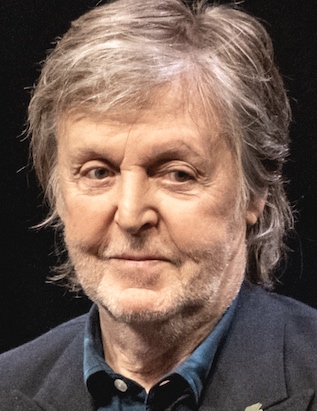
On this date in 1942, future Beatles member James Paul McCartney was born in Liverpool, England, to parents of Irish descent, Mary (née Mohin) and James McCartney. His mother was a nurse and midwife who died of an embolism as a complication of breast cancer surgery when Paul was 14, and his father worked in sales for a cotton merchant.
McCartney was baptized in his mother’s Catholic faith. His father was Protestant and later agnostic. Religion was not emphasized in the household. (“Paul McCartney: Many Years From Now” by Barry Miles, 1997) His father had a jazz band, played trumpet and piano and encouraged his sons to do the same.
McCartney learned to play the upright piano in their home but the guitar became his instrument of choice, reversing the order of the strings to accommodate his left-handedness. At age 15 he met John Lennon and before long joined Lennon’s band the Quarrymen. Two years later, in 1960, they renamed themselves the Beatles.
Their debut single was “Love Me Do” with “P.S. I Love You” on the B side. They were two of the 14 songs, all under three minutes, on their debut album “Please Please Me” (1963), led off by “I Saw Her Standing There.” The last of their 13 albums was “Let It Be,” released in 1970 and preceded by “Abbey Road” in 1969, the year McCartney married American photographer and musician Linda Eastman.
The Beatles top the all-time list of record sales as of this writing in 2024, followed in descending order by Michael Jackson, Elvis Presley, Elton John, Madonna, Queen, Led Zeppelin, Rihanna, Pink Floyd, the Rolling Stones, Eminem, Mariah Carey, Whitney Houston, Taylor Swift, Beyoncé, Coldplay and Celine Dion. (Topping the list of singles sales are Irving Berlin‘s “White Christmas” by Bing Crosby at 50 million copies followed by Elton John’s “Candle in the Wind 1997” as a tribute to Princess Diana with 33 million.)
He released his solo album “McCartney” (1970), providing compositions, instrumentation and vocals. He collaborated with Eastman and drummer Denny Seiwell on “Ram” (1971) with its No. 1 single “Uncle Albert/Admiral Halsey.” Later that year, ex-Moody Blues guitarist Denny Laine joined the McCartneys and Seiwell to form the band Wings, which went on to record seven albums and play five concert tours during its 10-year existence.
“McCartney III” (2020) was his 18th solo album. His book “The Lyrics: 1956 to the Present” (2021) was described as a “self-portrait in 154 songs.” The book “1964: Eyes of the Storm” ((2023) is a collection of photos he took at the height of Beatlemania.
Eastman died in 1998 at age 56 of breast cancer. Together 29 years, they had daughters Mary and Stella and a son James. McCartney married former model Heather Mills in 2002. Before divorcing in 2008, they had a daughter Beatrice. He married Nancy Shevell, a transportation company executive and longtime acquaintance 18 years younger than him in 2011. He embarked on a second “Got Back” concert tour in 2024 at age 81. His musicianship and prolific songwriting have earned him numerous honors, including British knighthood (making him Sir Paul McCartney), 18 Grammy Awards and a star on the Hollywood Walk of Fame.
Journalist and Fab Four friend Maureen Cleve, who earlier reported Lennon’s controversial comments about the Beatles being “more popular than Jesus,” wrote this about McCartney. “Baptized a Catholic, his interest in religion is flabby. Indeed, if it were not for his concern with the afterlife he would call himself an atheist. He is no longer, however, obsessed with worry about growing old.
“ ‘That wore off,’ ” McCartney told Cleve. “ ‘If our bodies stayed young, our minds would have to stay young, and nobody wants that. But Bertrand Russell seems all right. I wouldn’t mind being like him at all.’ ” (Evening Standard, March 25, 1966) Russell died four months shy of 98.
PHOTO: McCartney at age 79 in London’s Royal Festival Hall in 2021; Raphael Pour-Hashemi photo under CC 2.0.
JEAN SHEPHERD: “You guys seem to be pretty irreverent characters. Are any of you churchgoers?”
McCARTNEY: “Not particularly. But we’re not anti-religious. We probably seem anti-religious because of the fact that none of us believe in God. … In America, they’re fanatical about God. I know somebody over there who said he was an atheist. The papers nearly refused to print it because it was such shocking news that somebody could actually be an atheist — yeah — and admit it.”— Playboy magazine interview (February 1965)
Frank Loesser
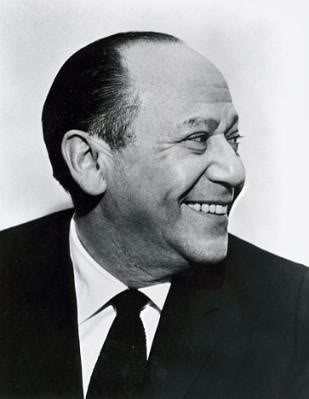
On this date in 1910, Frank Loesser was born in New York City. Loesser came from a musical family. His father taught classical piano, and his brother, Arthur Loesser, was a concert pianist. Loesser wrote his first song when he was 4 and soon taught himself to play harmonica and piano. He briefly attended the City College of New York but dropped out and turned to various jobs, including newspaper editing. In 1931 he teamed up with William Schuman to write his first lyrics for the song “In Love With a Memory of You.”
Loesser became an accomplished lyricist for such well-known songs as “Moon of Manakoora” (1943), with music by Alfred Newman, “Two Sleepy People” (1938) and “Heart and Soul” (1938), both with music by Hoagy Carmichael. His musical work is just as famous, including such hits as “If I Were a Bell” (1950), “Baby, It’s Cold Outside” (1944), “Luck Be A Lady” (1950) and “On a Slow Boat to China” (1948).
Loesser contributed scores for many celebrated Broadway musicals, including “Guys and Dolls” (1950), “The Most Happy Fella” (1956) and “How to Succeed in Business Without Really Trying” (1961). He also wrote the score for the film “Hans Christian Andersen” (1952), comprised of songs such as “Wonderful Copenhagen” and “Anywhere I Wander.”
He married twice and had three daughters and a son. In daughter Susan Loesser’s book A Most Remarkable Fella: Frank Loesser and the Guys and Dolls in His Life (1993), she wrote that his family was not religious. His grandparents “were Jewish by blood, but not by thought or deed. No religion was practiced at home.” Loesser’s father, Henry Loesser, “cultivated intellectual, not theological, fields.” Before Loesser died, he wrote that he wanted his body to be disposed of “without benefit of ceremony, [or] religion.” (D. 1969)
“What a blessing to know there’s a devil, and that I’m but a pawn in his game / that my impulse to sin doesn’t come from within, and so I’m not exactly to blame.”
— Frank Loesser (ironically) in "What a Blessing" (1960)
Stephen Foster
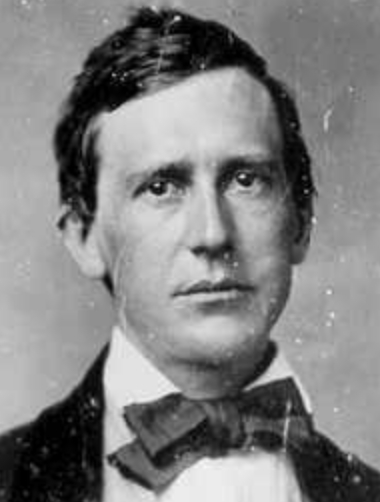
On this date in 1826, Stephen Collins Foster was born in Lawrenceville, Pa. Foster wrote the first great American popular songs and is remembered as the “father of American music.” He received little formal musical education and taught himself music composition and song writing. He was the first American songwriter to support himself from music sales, propelling the industry in its infancy. He produced a body of songs that have been remembered and sung longer than the works of any other American songwriters.
His most famous songs include “Oh Susanna,” “Camptown Races,” “Old Folks at Home,” and “My Old Kentucky Home.” Irving Berlin honored Foster by quoting part of “Swanee River” in his first hit, “Alexander’s Ragtime Band” (he had a picture of Foster on his office wall). George Gershwin paid him a similar tribute with his first hit song, “Swanee.”
Little is known of Foster’s inner religious views, but he lived and worked as if he were not a believer. A nonconformist, he never joined a church and rarely attended services. The songs that he chose to write of his own volition were purely secular. Toward the end of his life he accepted an assignment writing Sunday school songs. He hadn’t found God, but he had found a publisher. The songs were part of an endeavor to indoctrinate children with “catchy” music, sometimes setting religious words to secular melodies.
Foster married Jane Denny MacDowell in 1850 and they had one child together, Marion. Foster earned only small commissions on even his best-selling work and because there were no copyright laws, he never was given his fair share from publishers and died with only 38 cents in his pocket. (D. 1864)
Shameful rivalries of creed
Shall not make the martyr bleed,
In the good time coming.
Religion shall be shorn of pride,
And flourish all the stronger;
And Charity shall trim her lamp;
Wait a little longer.— Foster, “There’s a Good Time Coming” (1846)
Kevin Bacon
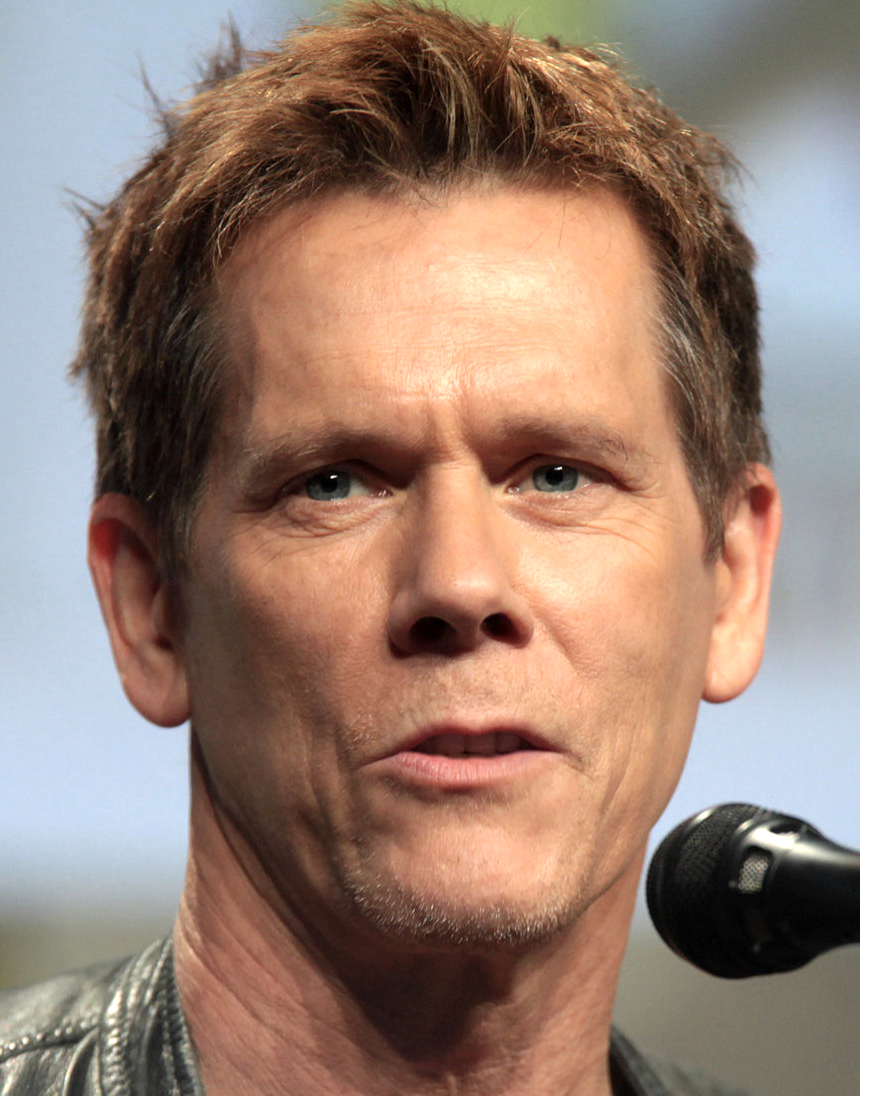
On this date in 1958, actor Kevin Bacon was born in Philadelphia. Bacon was educated at the Circle in the Square theater school in New York City and, after leaving home at 18, the Manning Street Actor’s Theater. At age 20, Bacon debuted as Chip Diller in “Animal House” (1978). Bacon later appeared in a wide range of movies, including “Friday the 13th” (1980), “Diner” (1982), “Footloose” (1984), and “A Few Good Men”(1992). He played atheist character David Labraccio in “Flatliners” (1990).
His prolific acting career is the basis for the trivia game “Six Degrees of Kevin Bacon,” in which players try to connect any person who has appeared in a film to Kevin Bacon through six or less degrees of separation. He has also worked as a director, directing his first film, “Losing Chase,” in 1996. He is a member of the band The Bacon Brothers along with his brother Michael. Bacon and actress Kyra Sedgwick married in 1988 and have two children, Travis, born in 1989, and Sosie, born in 1992.
In a 2005 interview with The Times of London, Bacon said, “I don’t believe in God.” Along with being a nonbeliever, Bacon is passionate about church-state separation. The Bacon Brothers were featured in the 2008 film “Everything You Always Wanted to Know About Separation of Church and State (But Were Afraid to Ask),” in which they performed their song “Children.”
The song speaks out about the harm inflicted on children by religious violence, with lyrics such as “Please don’t hurt the children, please lay down the rod / Please don‘t send your bombs in and say you‘re doing the work of God.” “It has to do with God and war and how they get jumbled up sometimes, and how a lot of times it is the children that suffer from the combination of those two things,” Bacon said during an interview at the time.
PHOTO: Bacon speaking at the 2014 San Diego Comic-Con; Gage Skidmore photo under CC 2.0.
“I think there is a puritanical wind that is blowing. I have never seen such a lack of separation between church and state in America.”
— Bacon, interviewed by The Times of London (2005)
Woody Guthrie
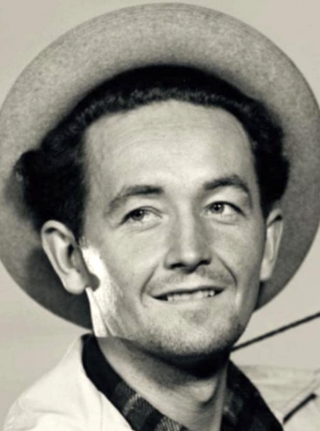
On this date in 1912, singer-songwriter Woodrow Wilson Guthrie was born in Okemah, Okla., to musically inclined parents Nora Belle (Sherman) and Charles Guthrie. It’s hard to categorize Guthrie, who rose to fame during the Great Depression as champion of the dispossessed and downtrodden, as one thing or another. He was poet, philosopher, political revolutionary, environmentalist, an admirer of Jesus Christ who scorned organized religion.
His life was filled with tragedy early on and ended that way. His sister fatally set herself on fire during an argument with their mother when he was 7, his father was severely burned in a home fire and Woody’s firstborn died at age 4 when she was burned in an electrical fire. His mother was committed to the Oklahoma Hospital for the Insane when he was 14, while he unknowingly carried the Huntington’s chorea gene that killed them both after long hospitalizations.
Musically inclined like his parents, he dropped out of high school as a senior and began playing for dances with his uncle in Texas. He married Mary Jennings in 1931. They divorced in 1940. He married twice more, to Marjorie Greenblatt (1945–53) and Anneke Van Kirk (1953–56), fathering eight children.
He had headed to California in the Dust Bowl migration, leaving the family temporarily in Texas. He hosted a “hillbilly” music radio show, made friends with people like Will Geer and John Steinbeck and wrote a column titled “Woody Sez” for the communist newspaper People’s World in 1939-40 but never joined the political party. He joined the U.S. Merchant Marine in 1943 and was drafted into the Army in 1945. He wrote patriotic songs backing the U.S. fight against fascism.
Guthrie wrote what became “This Land Is Your Land,” arguably his most famous song, in February 1940. Tired of hearing Kate Smith sing “God Bless America” on the radio, he sarcastically called his song “God Blessed America for Me” before renaming it when it was first recorded in 1944, when God was excised from the title and lyrics. As originally written, it said:
One bright sunny morning in the shadow of the steeple
By the Relief Office I saw my people —
As they stood hungry, I stood there wondering if
God blessed America for me.
Guthrie wrote over 3,000 song lyrics, including fanciful ones for children, songs which have influenced succeeding generations of musicians, most personally his son Arlo. His first album, “Dust Bowl Ballads” (1941), sold more than any other. His songs took the side of the economic refugees and those beset by tragedy against the “interests” and bankers. A line in “Pretty Boy Floyd” sums it up: “Some will rob you with a six-gun / And some with a fountain pen.” He also published two novels, created artworks and wrote numerous published and unpublished manuscripts, poems, prose and plays. Over 400 of his songs are in the Library of Congress.
Baptized as a young adult, he never attended church on a regular basis. Asked once to name the people he most admired, he replied, “Will Rogers and Jesus Christ.” (Ron Briley, History News Network, 2005) To him, Jesus was a working-class carpenter who championed the common people and was betrayed by the rich and their selfish interests.
In Born To Win (ed. Robert Shelton, 1965), Guthrie wrote: “Fear before none. Quiver before nothing. Kneel at no spot. Beg no cure. Be a slave to none and master to none. … Love is the only God I’ll ever believe in.” He came to that conclusion, trying to define what God meant to him, “when I was ready to throw so-called fearful cowardly thieving poisoning religion out my back door.” He once said that while he rarely darkened the door of a church, he “always had a deep love for people who go there.”
By the late 1940s, Guthrie’s health was declining and his behavior was becoming extremely erratic, with loss of muscle control and increasing inability to speak. He was diagnosed with Huntington’s and was hospitalized for nearly 12 years from 1956 until his death at age 55 at Creedmoor Psychiatric Center in Queens Village, N.Y., where the 19-year-old Bob Dylan had visited him in 1960. His ashes were sprinkled into the waters off Coney Island, where he had once lived. (D. 1967)
“Some of the preachers that promise you hamburgers in the hereafter get on my nerves; what I’d really like to do is to give ’em a hunk of blackberry pie right in the face.”
— Guthrie, quoted in "Bring Your Own God: The Spirituality of Woody Guthrie" by Unitarian minister Steve Edington (2012)
Steve Albini
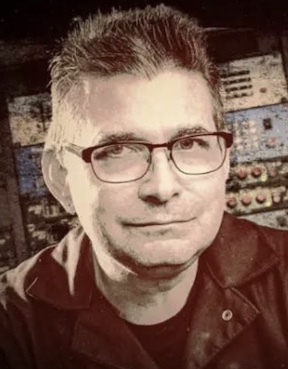
On this date in 1962, Steven Frank Albini was born in Pasadena, Calif., the youngest of three born to Gina and Frank Albini, high school sweehearts. He started playing bass guitar in high school and started writing about local punk rock bands after graduating from the Medill School of Journalism at Northwestern University. He founded and performed with the punk band Big Black and was guitarist and vocalist for the rock band Shellac starting in 1992.
Albini’s fame mostly came from his extensive work as a music producer. He produced over 1,000 albums and worked with numerous well-known artists such as Nirvana, Robert Plant, The Stooges, The Pixies and Cheap Trick. Albini was a unique producer in many ways. He preferred not to be credited for his work (or chose to be credited as a “recording engineer” rather than a producer) and not to receive royalties. He founded the Chicago recording studio Electrical Audio and appeared in the documentary “You Weren’t There: A History of Chicago Punk 1977-1984” (2007). Albini was also a chef who wrote a food blog.
“I’m an atheist,” Albini said in a 2011 interview with the website What I Wanna Know. “You could say that I’m agnostic, but that’s just a certain kind of atheist.” He continued, “If I were a gambling man I would put all my money on there not being anything other than this universe.”
Actually, he was a gambling man, his obituary said, noting the two World Series of Poker bracelets he won and his hosting of games at his home. He died unexpectedly in Chicago of a heart attack at age 61. Survivors included Heather Whinna, his wife of 16 years. (D. 2024)
“People use God to fill in the spaces in the gaps of their knowledge. … As we follow the trajectory of knowledge, the need for a God just dwindles, and it approaches zero.”
— Albini, interview with What I Wanna Know (June 4, 2011)
Mick Jagger

On this date in 1943, Michael Philip Jagger was born in Dartford, Kent, England. He was one of the founders of the iconic band the Rolling Stones in 1962 and became its lead singer and songwriter. Jagger has toured with the band in many different countries. The Stones were awarded a Grammy Lifetime Achievement Award in 1986.
In 1971 Jagger helped create the Rolling Stones Records label. He achieved further fame as a solo artist with five albums, including “She’s The Boss” (1985) and as an actor and producer who founded the Jagged Films company. He has acted in films such as “Performance” (1968) and “Ned Kelly” (1970), and his music appeared in the 2004 film “Alfie.” In 2003, Jagger was knighted as Sir Michael Jagger for his Services to Music. He has married twice (common law with Jerry Hall) and has eight children with five women, the most recent in 2016.
“Like most English people I’m not a great believer,” Jagger said in a 2007 interview with The Independent. “I’ve read Richard Dawkins’ book and it’s very persuasive. I’m more in awe of the universe and that’s not really a belief in God.” Jagger has also spoken out about the harm of religion. “Killing for ideas is the most dangerous form of killing at all. Being willing to die for your ideas rather than your country is another concept, but dying for an idea, like in religion, is absurd,” Jagger said in an interview with High Times in 2003. Some sources say that Jagger practices Buddhism.
“I don’t have belief in the Holy Book. I don’t think many English people do.”
— Jagger, to The Independent, 2007
David Crosby
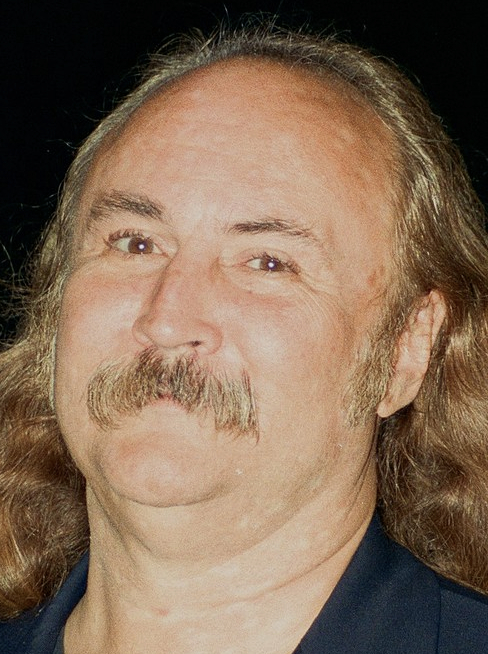
On this date in 1941, musician David Van Cortlandt Crosby was born in Los Angeles to Academy Award-winning cinematographer Floyd Crosby, who filmed the movie “High Noon” and many others, and Aliph Van Cortlandt Whitehead, who worked in sales at Macy’s. Her grandfather was the Episcopal bishop of the Diocese of Pittsburgh.
Crosby was an indifferent student and eventually earned a high school diploma by correspondence before enrolling at Santa Barbara City College to study drama. He started playing folk music in the early ’60s on a guitar gifted to him by his older brother Ethan, also a musician. They performed as a duo before David went solo and landed in New York’s Greenwich Village.
In 1964 he co-founded a new group, the Byrds, which burst into the national consciousness with their chart-topping single of Bob Dylan’s “Mr. Tambourine Man,” followed by “Turn! Turn! Turn!” and “Eight Miles High.” Political and musical differences led to him leaving the Byrds in 1968 after five albums. He teamed with Stephen Stills and Graham Nash, formerly of Buffalo Springfield and the Hollies, on their 1969 debut album “Crosby, Stills & Nash.” It was a smash hit on which Crosby wrote “Guinevere,” “Wooden Ships” and “Long Time Gone” (the last about Bobby Kennedy’s assassination).
Canadian rocker Neil Young joined the group after it had played at Woodstock. Crosby wrote their second album’s title track “Déjà Vu” and “Almost Cut My Hair” before releasing a critically panned solo album in 1971. Band members had started going off in different directions, and Nash and Crosby made three albums that all went gold.
Crosby’s serious troubles with the law started in 1982 and included serving nine months in Texas on drug and weapons charges. Three years later, he was arrested for drunken driving, hit and run and possession of a concealed pistol and imprisoned for a year. He was charged in 2004 with illegal possession of a hunting knife, ammunition and marijuana but got off with a $5,000 fine.
Crosby suffered from type 2 diabetes, and his use of hard drugs likely contributed to a hepatitis C infection, which necessitated a liver transplant in 1994. His 2006 autobiography “Since Then: How I Survived Everything and Lived to Tell About It” was co-written with Carl Gottlieb.
In 1987 at age 45, he married Jan Dance, a Florida recording studio receptionist who was 35. Stills gave the bride away at the Hollywood Church of Religious Science on Sunset Boulevard, with Science of Mind minister Robert Bitzer officiating. They stayed married until his death and had a son, Django, in 1995.
Crosby’s first child, a son given up for adoption, was born in 1962. He and James Raymond reunited 35 years later and went on to form the jazz-rock band CPR. He also had two daughters with former domestic partners Jackie Gutherie and Debbie Donovan and was the sperm donor for Julie Cypher’s two children with singer Melissa Etheridge.
Crosby was inducted into the Rock and Roll Hall of Fame twice: once for his work with the Byrds and again for his work with CS&N. He released what would become his final studio album, “For Free,” in 2021.
Crosby had no time for religion and wasn’t shy about saying so on Twitter as @thedavidcrosby: “Does anyone know of a religion that does NOT class women as less than men?” (Oct. 23, 2014) “Generally, historically … religion has been a force for divisiveness and destruction.” (March 31, 2018) “Faith always tried to be superior to science … claimed superiority over science … but nobody with brains ever bought that story.” (March 12, 2022)
The day before he died at age 81 at his horse ranch in Santa Ynez, Calif., he joked in response to a screenshot of a Google search that asked “can we go to heaven with tattoos?” Crosby tweeted: “I heard the place is overrated … cloudy.” His family said he died from an unspecified “long illness,” but Graham Nash said a few days later that he died in his sleep after contracting COVID-19 for the second time. He had been working on plans for a new album. (D. 2023)
“I don’t believe in God, and I’m not really a big fan of religion, any of them.”
— Interview in which he recalled telling Beatle George Harrison in the 1960s that he should take "with a grain of salt" what an Indian guru was telling him. (Rolling Stone, Oct. 12, 2021)
Vanessa Carlton

On this date in 1980, musician Vanessa Lee Carlton was born in Milford, Pennsylvania, the oldest in a family of three with a Russian-Jewish heritage. Her father is a pilot and her mother is a pianist and teacher who taught Carlton how to play the piano.
Carlton started ballet at age 9 and was later accepted to study at the prestigious School of American Ballet in New York City. She became discouraged by ballet’s high-pressure environment and found solace in music and writing lyrics. She started playing at gigs in Manhattan clubs while working as a waitress. This led to a deal with A&M Records in 2001.
Her first album, “Be Not Nobody,” launched her into the spotlight at age 21 with the pop anthem “A Thousand Miles.” The album achieved monumental success, selling over 100,000 copies in the first week and earning Grammy nominations for Record of the Year, Song of the Year and Best Instrumental Arrangement Accompanying Vocalist(s). Carlton’s second and third albums, “Harmonium” (2004) and “Heroes & Thieves” (2007), did not match the commercial success of the first and she left the major label system in 2008.
Carlton has said that she “self-destructed” before transforming her career by taking a more organic approach to music making. Her fourth album, “Rabbits on the Run” (2011), is where Carlton mastered her creative aesthetic. It was partially inspired by Stephen Hawking’s 1988 book on cosmology A Brief History of Time. The album’s exploration of cosmology, neurology, physics and a sense of reverence toward the Earth carried over to her fifth album,” Liberman” (2015).
In 2011, when asked what role faith plays in her music, she replied “I’m an atheist.” Carlton married John McCauley of the band Deer Tick in 2013 in a ceremony officiated by Stevie Nicks. Carlton and McCauley live in Nashville with a daughter, Sidney, born in 2015.
“I’m an atheist.”
— Carlton, live-streamed performance (June 7, 2011)
Bo Burnham

On this date in 1990, Robert Pickering “Bo” Burnham was born in Hamilton, Mass. Burnham started attending New York University’s Tisch School of the Arts in 2008 and has a brother, Pete. His career as a comedian and musician began when he posted comedic videos to his YouTube channel, boburnham, beginning in 2006.
In 2008, when Burnham was 18, he became the youngest person to perform a stand-up special for Comedy Central. He is known for his comedy routine “Words Words Words,” which he began performing in 2010 and earned him the 2010 Fosters Comedy Award Panel Prize.
His first CD, “Bo Burnham,” was released in 2009 by Comedy Central Records. “I’m a heretic,” Burnham said during his song “Rant,” part of his 2010 “Words Words Words” routine. During the song, he critiques Christianity for its support of slavery and opposition to gay marriage, and raps about Christians who lack understanding of the bible and twist bible passages to support their own viewpoints.
He wrote and directed the popular and critically acclaimed 2018 film “Eighth Grade,” which won a long list of industry awards. Actress Elsie Fisher played the “endearingly awkward” Kayla struggling to navigate between the real and online worlds. “Inside,” his fourth special, was released in 2021 during the COVID-19 pandemic without a crew or audience and was nominated in six Emmy and two Grammy Award categories.
In 2025 he had 4.75 million subscribers to his YouTube channel.
PHOTO: Burnham at the Montclair Film Festival in 2018 in New Jersey; photo by Heather Martino under CC 2.0.
“Jesus wasn’t the messiah. Get back, I’m a heretic and I’m on fire.”
— "Rant," "Bo Burnham: Words Words Words" (2010)
Charlie Parker
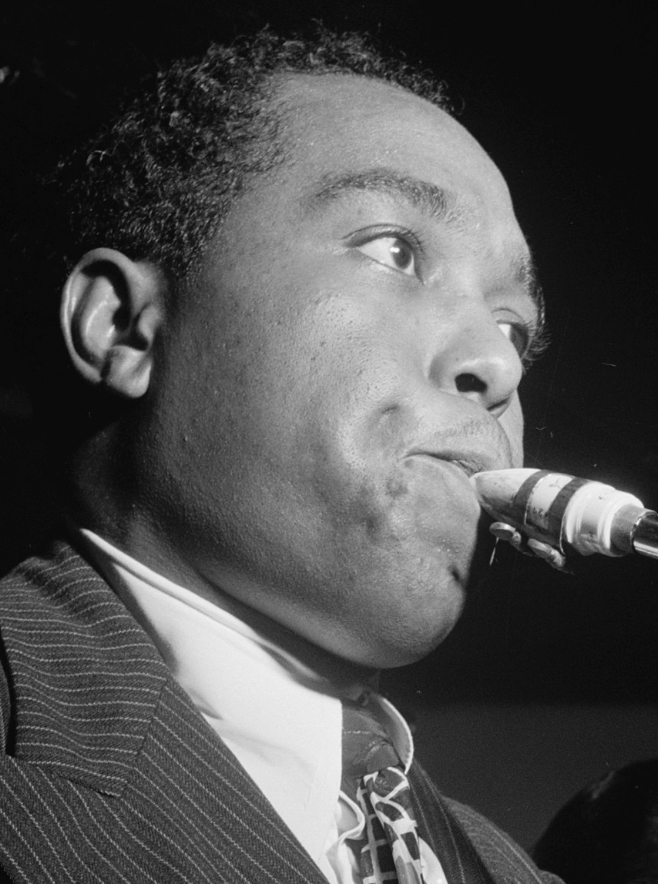
On this date in 1920, American jazz soloist, saxophonist and composer Charles Parker Jr. was born in Kansas City. Parker was known by the nickname “Yardbird” or, alternatively, “Bird,” and many of his best-known compositions — “Ornithology,” “Bird Gets the Worm,” “Bird of Paradise” — contain references to this moniker. A virtuosic improviser, Parker’s work was crucial to the development of bebop, an uptempo and harmonic style of jazz. A student of classical music and an admirer of composer Igor Stravinsky, Parker was an advocate for jazz musicians of the Beat Generation.
Parker’s addiction to heroin, which he developed as a teen after he was given morphine for an auto accident, plagued him all his life. Parker’s collaborations with pianist Thelonious Monk, drummer Kenny Clarke and guitarist Charlie Christian are often cited as major developments in the New York City jazz scene. Parker’s music displayed a mastery of the jazz technique known as “contrafact,” wherein the musician imposes his or her own original melodies over existing jazz standards.
After his death in New York at age 34, Parker’s body was flown back to Missouri to respect his mother’s wishes. He received a Christian funeral, which Chan Berg, his common-law wife and mother of his two children, lamented due to Parker’s lifelong atheism. His daughter had died at age 3 the year before. The official causes of Parker’s death were lobar pneumonia, a bleeding ulcer, advanced cirrhosis and a heart attack. The coroner who performed his autopsy mistakenly estimated his age at between 50 and 60. (D. 1955)
PHOTO: Parker in 1947. Public domain photo (cropped) by William Gottlieb
“A confirmed atheist, he had not been inside a church in years.”
— Biographer Ross Russell in "Bird Lives!: The High Life & Hard Times of Charlie (Yardbird) Parker" (1973)
Roger Waters
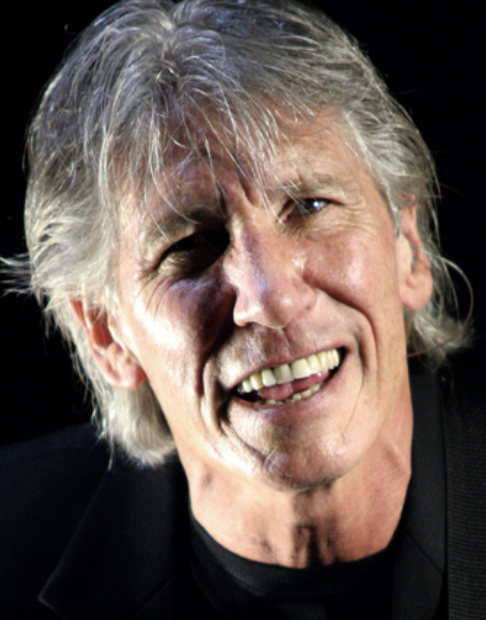
On this date in 1943, English rock musician and songwriter George Roger Waters, best known for his 20-year career in the band Pink Floyd, was born in Great Bookham, England. Waters met fellow Pink Floyd member and first lead singer Syd Barrett while growing up in Cambridge. David Gilmour, who would replace Barrett as lead singer in 1967 (the band formed in 1965), attended a different school on the same road. Waters met the other band members, Nick Mason and Richard Wright, while studying architecture at the Regent Street Polytechnic in London.
After Barrett’s departure, Waters gained creative control over the band’s music, writing almost all of the lyrics. It was also his idea to create “concept albums” such as The Dark Side of the Moon, Wish You Were Here, Animals, The Wall and The Final Cut. A series of albums the band produced in the 1970s are among the best-selling records of all time. The original band dissolved in 1985 due to creative conflicts but Gilmour ultimately won the legal right, after a contentious public battle with Waters, to continue to use the Pink Floyd name and a majority of the band’s songs.
Since the dissolution, Waters and Pink Floyd have made attempts at reunion shows, benefit concerts and tours. Waters embarked on a solo career after Pink Floyd, with the critically acclaimed album Amused to Death (1992) and a solo world tour starting in 1999, which became so successful it extended to three years. Waters worked on an opera, “Ça Ira,” for 16 years, which was released in 2005.
In an interview with Mark Brown of the Rocky Mountain News, Waters said: “Please, God — I’m an atheist so maybe I shouldn’t be asking God — but let Barack Obama finally win the Democratic nomination and elect a person who seems to be not just enormously intelligent but also deeply humane and seems to have an imagination.” (April 25, 2008.) From his lyrics for “What God Wants, Part I”: “Through the power of money, And the power of your prayers, What God wants God gets God help us all. God wants dollars, God wants cents, God wants pounds shillings and pence. … What God wants God gets God help us all.” (Amused to Death, 1992)
PHOTO: Waters performing in 2007 in São Paulo, Brazil; Daigo Oliva photo under CC 2.0.
“I had some pretty dark and desperate moments all those years ago. … I didn’t ever smash up a hotel room or throw a TV out a window. That was Led Zeppelin. Thank god. If there was a god, you know, which there isn’t.”
— Waters interview from "The Wall Tour," America Online
Ani DiFranco

On this date in 1970, punk folksinger Ani DiFranco was born in Buffalo, N.Y. Ani (pronounced AH-nee) started singing Beatles covers in local bars as a youngster. By 15 she had begun writing her own material and was living on her own. She graduated at age 16 from the Visual and Performing Arts High School in Buffalo and moved to New York City at 18.
She has released over 20 albums as of this writing. Sing Out calls her lyrics “jaw-dropping.” Spurning offers from indie and major labels alike, DiFranco started her own record company, Righteous Babe Records. She not only writes and publishes her own songs and produces her own recordings, but even creates the artwork. An in-demand artist, she tours acoustic, college and rock club circuits, winning over a diverse audience.
Her freethought views are revealed in such songs as “Animal” from “Educated Guess” (2004), in which she sings about growing up “surrounded by willful ignorance” and “the religions of men.” She said in a May 2000 interview with The Progressive: “I’m not a religious person myself. I’m an atheist. I think religion serves a lot of different purposes in people’s lives … but then, of course, institutional religions are so problematic.”
PHOTO: DiFranco in 2017 in Napa Valley, Calif. Photo via Shutterstock by Sterling Munksgard.
“I’m an atheist. … How unfortunate it is to assign responsibility to the higher up for justice amongst people.”
— Ani DiFranco, interview by Matt Rothschild, The Progressive (May 2000)
Greydon Square
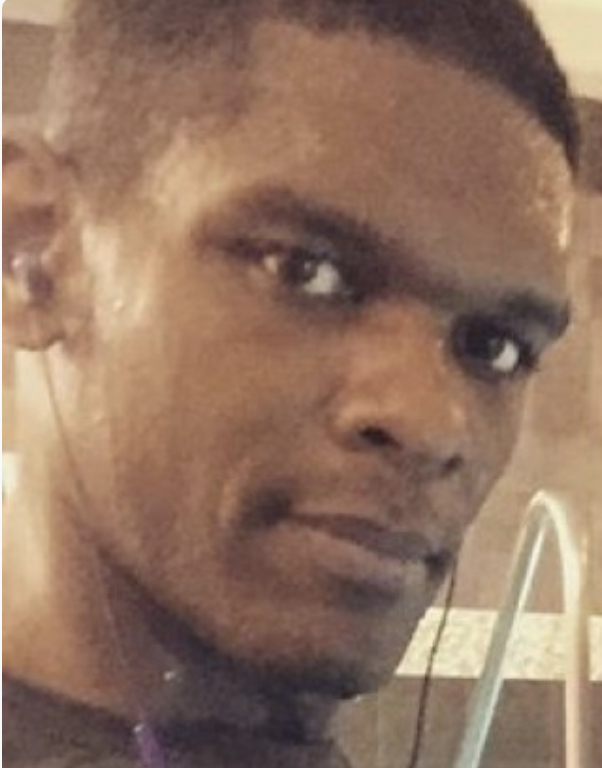
On this date in 1981, rapper Greydon Square, né Eddie Collins, was born in Compton, Calif. Square is an outspoken atheist whose clever lyrics focus on atheism, science, philosophy and criticisms of religion. He also has rapped about his experiences growing up in Compton and serving in the war in Iraq. His parents are absent from his life, so as a child and teen he lived in several different group homes. He taught himself how to play piano at one of the group homes when he was 9.
As a teen he joined the gang Tragniew Park Compton Crips. At 19 he decided to make a change in his life and join the army, where he was deployed to the front lines in Iraq. Square began studying physics at Arizona State University but later changed to computer science. He became an atheist at 25 when he began to think critically about religion. He has a large fanbase in the atheist community.
Square has released seven albums, as of this writing: Absolute (2004), The Compton Effect (2007), The C.P.T. Theorem (2008), Type I: The Kardashev Scale (2010), Type II: The Mandelbrot Set (2012), Omniverse: Type 3: Aum niverse (2015) and Compton Scattering (2016).
“After a lot of reading, and research, I realized I didn’t have any secret channel picking up secret messages from God or anyone else. That voice in my head was my own.”
— Square, 2010 interview with Martin Pribble for his blog "Attempting to Make Sense"
Charlie McDonnell

On this date in 1990, Charlie McDonnell was born in Bath, England, where he grew up. In 2007, while bored studying for exams, he started making videos for his YouTube channel, “charlieissocoollike.” The channel became incredibly popular and in 2013 reached 2 million subscribers.
As a musician he was a member of the Doctor Who-themed rock band Chameleon Circuit and of the short-lived project Sons of Admirals. He directed a series of short films in 2013-14 and co-hosted the YouTube breakfast show “Cereal Time” with fellow vlogger Jimmy Hill in 2015-16. In 2016 he published his first book, Fun Science.
McDonnell occasionally performs humorous songs, usually accompanying himself on the ukulele. He addresses scientific themes in songs like “A Song About Monkeys” about evolution and “Chemical Love,” on the physical origins of human emotion. In “A Song About Monkeys” he tells a gorilla: “You’re my favorite animal, but I’m biased I guess, because you look quite a bit like me. … You’re just like me, ’cause I’m an animal. We’re of the same biology.”
McDonnell often addresses scientific ideas from a rational perspective in his videos and calls himself an atheist. In 2017 he moved to Canada, his girlfriend’s homeland. He announced on Twitter in March 2019 that he was quitting YouTube posting to pursue screenwriting.
PHOTO: By Gage Skidmore under CC 3.0.
FAN BLOG (rating McDonnell’s “hotness points”):
FAITH: Unknown but believed to be an atheist.
McDONNELL: I am an atheist.
FAN BLOG: Minus 50 points.
McDONNELL: Oh well, reason loses again.— 2010 video on McDonnell's YouTube channel
Sting
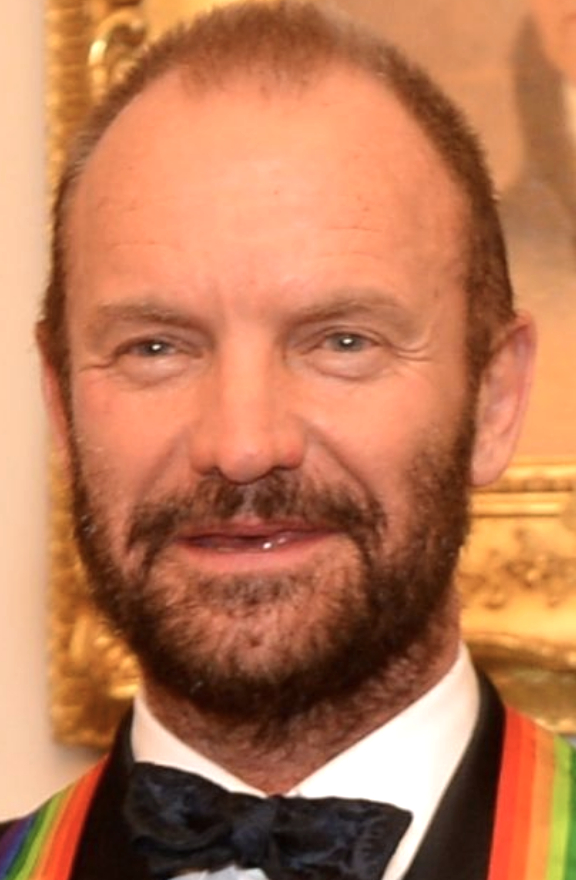
On this date in 1951, musician Gordon Matthew Thomas Sumner (Sting), was born to a milkman and hairdresser in Wallsend on Tyne, Northumberland, England. Sumner took the name Sting after someone told him he looked like a bee wearing a striped sweater. He became a husband and father before turning 20 and moved to London hoping to launch his musical career. He and two others started the band The Police in 1976. As lead singer, he wrote most of the music and lyrics.
The group had early hits with “Roxanne” and “Message in a Bottle” but struck musical gold with the 1983 hit “Every Breath You Take.” Sting began acting in such films as “Quadrophenia” (1979), “Dune” (1984) and “The Bride” (1985). The Police broke up in 1984 after winning six Grammys and Sting released his first solo album the next year, “The Dream of the Blue Turtles,” which was nominated for a Grammy. He continued to perform and record and collaborate with other artists, including a 2014-15 world tour with Paul Simon and the next year with Peter Gabriel. His 14th album, “My Songs,” was released in May 2019.
He was married to actress Frances Tomelty from 1976-84. They had two children: Joseph and Fuchsia Katherine. He married actress and film producer Trudie Styler in 1992 after they had been together for a decade. They have four children: Brigitte Michael, Jake, Eliot Pauline and Giacomo Luke.
Sting’s activism has persisted throughout his career. Since the 1980s, he has actively supported Amnesty International, and co-founded the Rainforest Foundation in 1989, in an effort to save the Brazilian rainforest. He has authored books including Jungle Stories: The Fight for the Amazon (1989), with co-author Jean-Pierre Dutilleux, and Spirits in the Material World (1994), with Pato Banton.
In the CD booklet of his Winter Solstice album, “If On A Winter’s Night” (2009), Sting twice identified himself as an agnostic. Answering “What do you think happens when we die?” he once said: “It’s only conjecture, but I imagine it’s the same as it was before I was here. Which makes it incumbent upon us to create a heaven on Earth, now, and not hell.” (“The Late Show with Steven Colbert,” Dec. 10, 2021)
Public domain photo: Sting at the 2014 Kennedy Center Awards.
“[I]f ever I’m asked if I’m religious I always reply, ‘Yes, I’m a devout musician.’ Music puts me in touch with something beyond the intellect, something otherworldly, something sacred.”
— Sting, commencement address, Berklee College of Music in Boston (May 15, 1994)
Bob Geldof
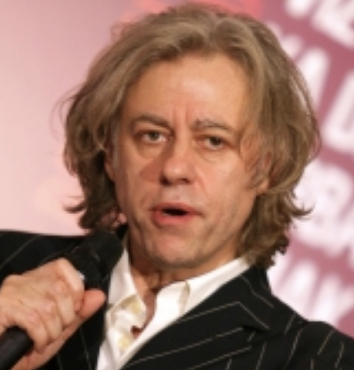
On this date in 1951, Robert Frederick Zenon Geldof was born in Dun Laoghaire, Ireland. He attended Blackrock College and became a music journalist for Georgia Straight in Vancouver, B.C., after graduation. Returning to Ireland, he became the lead singer of the punk rock band the Boomtown Rats (1975–86), known for the songs “I Don’t Like Mondays” (1979), “Rat Trap” (1978) and “Up All Night” (1981).
In 1986 he went solo and published his autobiography Is That It?. He portrayed Pink in “The Wall” (1982), based on Pink Floyd’s album. He married journalist Payla Yates in 1986 and the couple had three children: Fifi, born in 1983, Peaches, born in 1989, and Pixie, born in 1990. They divorced after Yates left him for INXS lead singer Michael Hutchence, who committed suicide in 1997. Yates died of a drug and alcohol overdose in 2000. Peaches died of a heroin overdose in 2014.
Geldof is a philanthropist and anti-poverty activist. In 1984 he formed the musical group Band Aid, which raised $8 million to aid Ethiopia. Geldof also helped organize the Live Aid concerts in 1985, which raised over $150 million to combat African famine. He followed with the Live 8 concerts in 2005 featuring over 1,000 musicians. He was elected a member of the Commission for Africa in 2004, received a Lifetime Achievement Award at the 2005 Brit Awards for his musical accomplishments, was nominated for the Nobel Peace Prize three times and was knighted in 1986.
When asked in an Independent article (July 10, 2006) if he was a saint or a sinner, Geldof replied, “Being an atheist I can’t be either.” In a 2011 interview with the Manchester Jewish Telegraph, he explained: “I was a quarter Catholic, a quarter Protestant, a quarter Jewish and a quarter nothing — the nothing won.”
After several successful business ventures, he formed the private equity firm 8 Miles in 2008, investing solely in Africa and domiciled on the Indian Ocean island of Mauritius. The firm has come under criticism for operating out of a country seen as a tax haven instead of locating in Africa.
“I actively disliked the Church and its institutionalized morality which I felt bedeviled Ireland.”
— Geldof in his autobiography "Is That It?" (1986)
Matthew Sweet

On this date in 1964, Sidney Matthew Sweet was born in Lincoln, Neb. He briefly attended the University of Georgia in 1983 before dropping out to focus on his music. Sweet is a singer, guitarist, bassist and keyboardist who has been writing and recording music since he was a teenager. As of this writing, he’s recorded 22 albums, many in the “power pop” genre, including “Girlfriend” (1991), “Altered Beast” (1993), “100% Fun” (1995), “Sunshine Lies” (2008), “Completely Under the Covers” (2015, with Susanna Hoffs, a box set of all three “Under the Covers” albums), “Tomorrow Forever” (2017) and “Tomorrow’s Daughter (2018).
In 2010, playwright Todd Almond made “Girlfriend” into a rock musical. His songs have been included in numerous television and film soundtracks. He also makes and sells pottery and owns the Lolina Green Pottery Studio. He lives in Omaha with his wife Lisa.
When asked by The Onion in 2000 if he believed in God, Sweet replied that he believes in nature: “I don’t think there’s a God like the God everybody’s taught about.” In 1991 he recorded “Divine Intervention,” which Slant magazine in 2004 called “the most melodic paean to agnosticism ever written.” In a 2016 interview with Magnet magazine, Sweet said, “People see what they want in ‘Divine Intervention.’ If they’re religious, they might think, ‘Awesome. That’s when God comes.’ But I was saying that he’s not. I was coming out as an atheist, in a way.”
PHOTO: Sweet in 2006; photo by Charlie IIevwellin under CC 3.0.
I’ve spent twenty years learning to live
In a world that takes back all that it gives
But I do not want a war
‘Cause I’m not in for killing another man
Defending my holy land
As if there’s a god who would understand.— From Sweet's song "Holy War" on the 1991 album "Girlfriend"
Tim Minchin
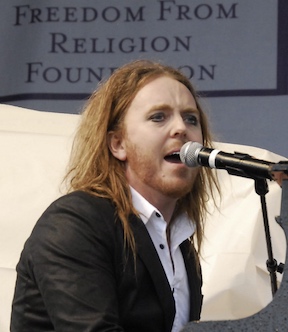
On this date in 1975, Timothy David Minchin was born in Northampton, England, to Australian parents. On his website he describes himself as a “comedian, actor, composer, songwriter, pianist, musical director and huge rock ‘n’ roll megastar.” He grew up in Perth, Australia, where he attended the University of Western Australia and received a bachelor of arts in English and theater in 1995. He went on to obtain an advanced degree in contemporary music at the Conservatorium of Western Australia in 1998.
In 2002 he began his career as a musical comedian in Melbourne in shows where he sang original songs while accompanying himself on piano and incorporating more traditional stand-up elements. Minchin came to prominence at the Melbourne International Comedy Festival in 2005 and went on to win the Perrier Newcomer Award at the Edinburgh Fringe Festival that same year. Living in London, he toured the United Kingdom, Australia, New Zealand and North America. He has also written the book and lyrics for the Royal Shakespeare Company’s adaptation of Roald Dahl’s “Matilda,” which premiered in Stratford-upon-Avon in December 2010.
Minchin is outspoken in his opposition to religion and to nonscientific claims made by New Age groups and others. His comedy and songs cover a wide range of topics, from love and sex to political controversies and language use, but a primary focus is on religion. Many contain strong language but some are safe for radio play, including “Peace Anthem for Palestine,” which Minchin says sums up his views on religious conflict: “We don’t eat pigs, you don’t eat pigs, it seems it’s been that way forever. So if you don’t eat pigs and we don’t eat pigs, why not not eat pigs together?”
He does express fondness for the music of his upbringing in the Anglican Church and the secular and family aspects of Christmas in the Southern Hemisphere in his 2009 single “White Wine in the Sun.” But its hard-hitting lyrics created a firestorm in Australia when the song was released as part of a charitable seasonal album in 2010. Themes of his work include his contempt for unscientific thinking (“If You Open Your Mind Too Much Your Brain Will Fall Out (Take My Wife)” and for the beauty of scientific thinking in the comedy routine “Tony the Fish.”
Minchin returned to touring in 2019 after a seven-year break. The BACK tour visited Australia and New Zealand in March and April, with performances scheduled in October and November in Europe.
PHOTO: Minchin at the 2012 Reason Rally; FFRF photo by Andrew L. Seidel.
“And yes I have all of the usual objections
To the miseducation of children who, in tax-exempt institutions,
Are taught to externalize blame
And to feel ashamed and to judge things as plain right and wrong
But I quite like the songs. ”— Minchin, “White Wine in the Sun,” (2009)
Giuseppe Verdi
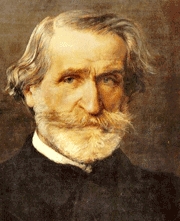
On this date in 1813, Italy’s great composer, Giuseppe Verdi, was born to a humble family in Le Roncole, a village near Busseto. He started music lessons with the village church organist at age 7. He was turned away from a conservatory in Milan, but studied privately. His first opera, “Oberto,” was produced at La Scala in 1839. Many operas would follow, including “Rigoletto” (1851), “Il Trovatore” (1853), “La Traviata” (1853) and “Les Vepres Siciliennes” (which was criticized by clergy, 1855).
The composer of “Don Carlos” (1867), “Aida” (1870), “Otello” (1886) and “Falstaff” (1893) was acclaimed internationally and regarded by contemporaries as the greatest Italian composer of his century. Verdi’s early personal life was marked by family tragedies, including the death of his sister at age 17. He married Margherita Barezzi, the daughter of a patron, in 1836 and she gave birth to children in 1837 and 1838 but both died in infancy. Margherita died of encephalitis at age 26.
Verdi was generally anti-clerical and a rationalist. He sympathized with 19th-century campaigns for freedom. At the end of his career, Verdi shared his wealth, endowing the city of Milan with two million lire in 1898 to establish a home for aging musicians, the grounds of which became his final resting place. He also provided funds for a hospital near Busseto.
He married soprano Giuseppina Strepponi in 1859 after they had lived together for several years, a scandalous cohabitation in the eyes of some. She died in 1897. Later in life Strepponi wrote: “I exhaust myself in speaking to him about the marvels of the heavens, the earth, the sea, etc. It’s a waste of breath! He laughs in my face and freezes me in the midst of my oratorical periods and my divine enthusiasm by saying ‘you’re all crazy,’ and unfortunately he says it with good faith.” (Verdi: A Biography by Mary Jane Phillips-Matz, 1993.)
Verdi died of a stroke in 1901 at age 87. “[My funeral is to be without] any part of the customary formulae,” Verdi wrote in his will (cited by F.T. Garibaldi in Giuseppe Verdi, 1903). An estimated 300,000 people came to his memorial service in Milan, where Arturo Toscanini directed musicians and a choir of over 800 voices in Verdi’s Va, pensiero (known as the chorus of the Hebrew slaves) from “Nabucco.” (D. 1901)
“Like many nineteenth-century artists, Verdi was an agnostic whose elevated sense of morality and duty bypassed divine sanction. Strepponi, replying in 1871 to a friend bent on Verdi’s conversion, at first wrote that, with the highest virtues, her husband was an atheist; she then revised this to ‘I won’t say an atheist, but certainly very little of a believer.’ ”
— "The Life of Verdi" by John Rosselli (2000)
Thelonious Monk
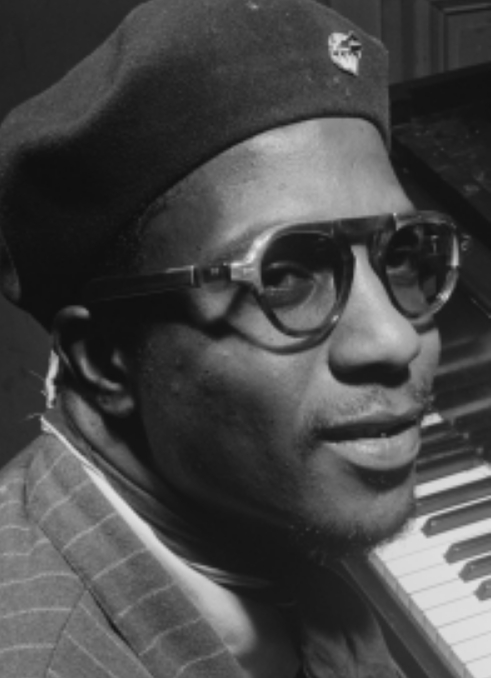
On this date in 1917, the American jazz composer and pianist Thelonious Sphere Monk was born in Rocky Mount, North Carolina. When he was 5, his family moved to Manhattan, where he started playing the piano, largely self-taught. His compositions “Round Midnight,” “Well, You Needn’t,” Straight, No Chaser,” “Blue Monk” and others have become standards in the jazz repertoire. “Round Midnight” is the most recorded jazz standard written by a jazz musician, appearing on more than 1,000 albums.
Monk’s idiosyncratic style utilized unexpected melodic twists, dissonant harmonies (which are pleasing to jazz players), erratic percussive phrases punctuated by unexpected hesitations and silences. Despite these unorthodox qualities, Duke Ellington is the only jazz composer who has been recorded more often than Monk, who is one of only five jazz musicians to have been on the cover of Time (along with Louis Armstrong, Duke Ellington, Dave Brubeck and Wynton Marsalis).
Like his music, Monk’s views on religion were also unorthodox. As a teenager, he played the organ for a traveling evangelist, but it appears he was an agnostic who held no religious beliefs of his own. Biographer Robin D. G. Kelly wrote that “Monk clearly was not a true believer” and that “most people who knew Monk remember that he rarely attended church and did not speak about religion in the most flattering terms.”
According to his niece Charlotte, “He was never into religion. Religion was not his thing. … He never went to church or any of that. And his kids, he never took them to church. He said they had to have their own mind about things.” But he was tolerant of religion and sometimes accompanied his mother on the piano as she sang her beloved hymns while she was dying of cancer.
After years of declining health, he died of a stroke at age 64 in Weehawken, N.J. He was posthumously awarded the Grammy Lifetime Achievement Award and a Pulitzer Prize Special Citation. (D. 1982)
PHOTO: Monk in 1947. William P. Gottlieb photo, Library of Congress.
INTERVIEWER: “Do you believe in God?”
MONK: “I don’t know nothing. Do you?”— "Thelonius Monk: The Life and Times of an American Original" by Robin D. G. Kelley (2009)
Tom Petty
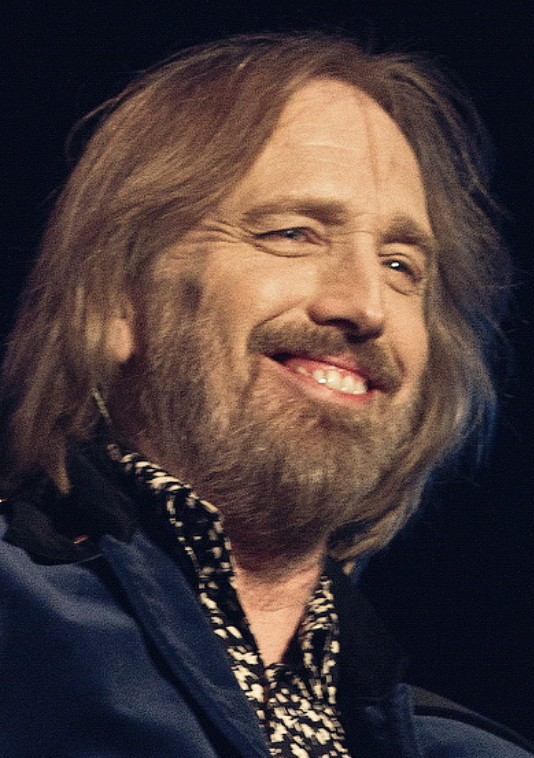
On this date in 1950, musician Thomas Earl Petty was born in Gainesville, Fla. Petty described his relationship with his father, an insurance salesman, as tumultuous, but he was close to his mother and his brother Bruce. When he saw the Beatles perform on “The Ed Sullivan Show” in 1964, he became focused on making his way as a musician. He dropped out of high school at 17 to tour with one of his early bands, Mudcrutch. The band moved to Los Angeles to pursue a record deal, but broke up and became known as Tom Petty and the Heartbreakers in 1975.
In 1976 they released their first album, which included the hit singles “American Girl” and “Break Down.” They continued to release a string of successful albums throughout the 1970s and ’80s. In 1988 Petty joined with George Harrison, Roy Orbison, Bob Dylan and Jeff Lynne of ELO to form the Traveling Wilburys, a side project that won a Grammy in 1990. In 1989 Petty released his first solo album, “Full Moon Fever,” featuring “Free Fallin’ ” and “I Won’t Back Down.” The album “Wildflowers” was released in 1994. The following year he won a Grammy for “You Don’t Know How It Feels.”
Petty was married twice, first to Jane Benyo, with whom he had two daughters. The couple divorced in 1996. In 2001 he married Dana York and became a stepfather to her son. Tom Petty and the Heartbreakers was inducted into the Rock and Roll Hall of Fame in 2001. Petty continued to record albums until the final years of his life, releasing his most recent album with the Heartbreakers in 2014.
The album was somewhat controversial and contained a bonus track, “Playing Dumb,” that deals with the sex abuse epidemic and cover-up in the Catholic Church. When asked about the song during an interview with Billboard magazine (July 29, 2014), Petty explained, “If I was in a club, and I found out that there had been generations of people abusing children, and then that club was covering that up, I would quit the club. And I wouldn’t give them any more money.”
He died at age 66 in Santa Monica, Calif., of an accidental drug overdose from a mix of pain and other medications, ruled the Los Angeles County medical examiner. His wife later told Billboard that he had put off having surgery for a fractured hip in order to go on a final tour: “That’s why he wouldn’t go to the hospital when his hip broke. He’d had it in mind it was his last tour and he owed it to his longtime crew, from decades some of them, and his fans.” (D. 2017)
PHOTO: Petty in 2012 in Denmark. CC 3.0.
“A lot of people really struggle to find out what they want to do in life, but I knew as soon as I saw Elvis Presley, when I was 11. From that point, music became my religion, my nourishment.”
— Petty, “No Backing Down,” Los Angeles Times (Aug. 2, 2002)
Steven Wilson

On this day in 1967, musician Steven John Wilson was born in the Kingston upon Thames section of London to music-loving parents. His father, an electronic engineer, built him a multi-track tape recorder and a type of synthesizer called a vocoder. Wilson’s first instrument was a guitar but he grew to learn to play others, including keyboards, autoharp, hammered dulcimer and flute. The rock group Porcupine Tree, for which he’s most well-known, started as his solo project in 1987 before disbanding in 2010.
Associated mainly with progressive rock, Wilson’s influences and work as a composer, performer and producer have encompassed genres such as psychedelia, pop, extreme metal, electronic and jazz. He’s worked with groups like King Crimson, Pendulum, Jethro Tull, Yes, Tears for Fears, Roxy Music and Anathema. The Daily Telegraph in 2017 called him “the most successful British artist you’ve never heard of” in that he has avoided mainstream music, an industry he calls “dreadful.”
Wilson has been nominated four times for Grammy Awards, twice with Porcupine Tree, with his collaborative band Storm Corrosion and as a soloist. He was crowned “king of prog rock” in 2015 at the Progressive Music Awards in London. AllMusic.com credits him on 976 different releases as either songwriter, instrumentalist or producer.
Wilson, an atheist, frequently criticizes religion in his songs. His 2017 album “To the Bone” includes the track “People Who Eat Darkness,” which is about living next door to a fundamentalist religious terrorist and being none the wiser. The song “Last Chance to Evacuate Planet Earth” (2001) commented on the disturbing details behind the Heaven’s Gate cult’s mass suicide in 1999. “Prodigal” from Porcupine Tree’s 2003 album “In Absentia” says “I tried to find myself a better way/I got religion but I went astray/They took my money and I lost my faith.”
Wilson is a vegetarian who doesn’t smoke or do recreational drugs and drinks only occasionally. In a 2012 interview he said “a lot of musicians produce fantastic work in their 20s that’s incredibly creative and prolific. By the time they get to 30, they get married and have kids. Suddenly, the music starts to get more predictable. I think that’s because they become focused on other things and the music becomes a job as opposed to being a vocation. That’s never happened to me. I don’t have a family. I’m not interested in having a family. Some people might think that’s very tragic and sad. I don’t. It’s not for me.”
PHOTO: Wilson in Bologna, Italy, in 2019; photo via Shutterstock by Carlo Vergani.
INNERVIEWS: Are you an atheist?
WILSON: I guess I am in some ways your archetypal atheist. I think the whole myth of religion is absolutely absurd. I say this with the caveat that I understand it brings happiness to people who would otherwise be unhappy. There is comfort in it for people who would otherwise be tortured by their own existence and all that stuff. I appreciate those reasons and arguments, but at the end of the day, I’m afraid it’s just a silly fairy tale that mankind has dreamed up because of our fear of death. It’s as simple as that.— Innerviews online music magazine (2012)
Greg Graffin
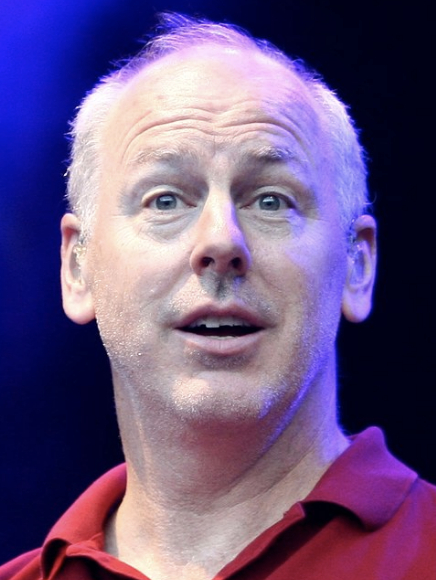
On this date in 1964, Gregory Walter Graffin was born in Racine, Wis. Graffin says he was raised in “an absolute vacuum of religion.” His father was a University of Wisconsin English professor. His parents divorced and he moved with his mother to Los Angeles when he was 11.
Graffin co-founded the punk rock band Bad Religion in 1980. The band released “Age of Unreason” in 2019, its 17th studio album. It was among the headliners at the 2012 Reason Rally in Washington, D.C., where Graffin sang the national anthem. He earned bachelor’s and master’s degrees from UCLA and a Ph.D. in zoology in 2003 from Cornell University. His thesis examined religion’s effect on humanity and included asking evolutionary biologists if they believed in God; almost 90% of those surveyed did not.
His books include Is Belief in God Good, Bad or Irrelevant? A Professor and Punk Rocker Discuss Science, Religion, Naturalism & Christianity (with Preston Jones), Evolution and Religion, Anarchy Evolution: Faith, Science, and Bad Religion in a World Without God (with Steve Olson) and Population Wars: A New Perspective on Competition and Coexistence. As of this writing he teaches a course on evolution for non-majors at Cornell between band tours.
Graffin calls himself a naturalist and says while he doesn’t believe in God, he’d rather not be called an atheist because “it’s not really saying much about how you came to that conclusion.” He received the Outstanding Lifetime Achievement Award in Cultural Humanism from Harvard University’s Humanist Chaplaincy in 2008.
He married Greta Maurer in 1988. After divorcing in 1996, he married Allison Kleinheinz in 2008. He has a daughter, Ella, and a son, Graham, with Greta.
PHOTO: Graffin in Germany with Bad Religion at the Taubertal Festival 2013; photo by Antje Naumann under CC 3.0.
“If you can believe in God, then you can believe in anything. It’s a gang mentality.”
— Graffin, wired.com interview (November 2006)
Robert Ellis
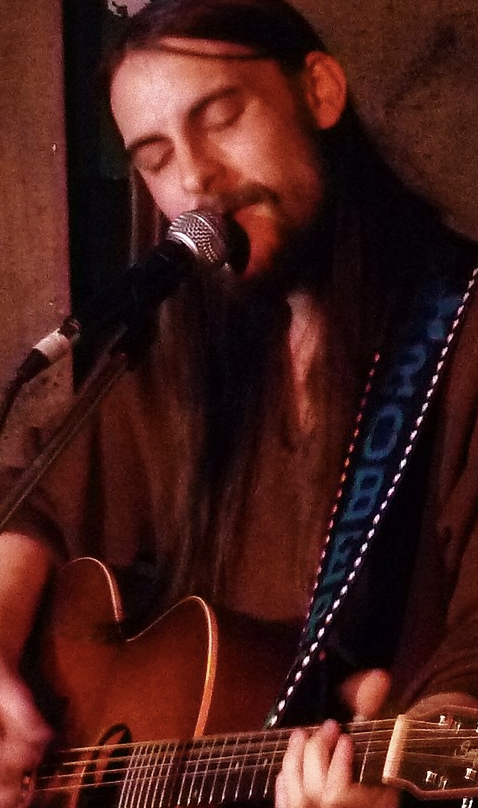
On this date in 1988, singer-songwriter and guitarist Robert Ellis was born in Lake Jackson, Texas. He was raised on country and bluegrass music and dropped out of high school his junior year to take music classes at a community college. He began performing with his band Robert Ellis and the Boys around Houston in 2010. For a time they appeared weekly at Fitzgerald’s in Houston on what came to be known as “Whiskey Wednesdays.” They played classic country covers and eventually original material written by Ellis.
Ellis released his first LP “Photographs” in 2011. In 2012 he performed at the Bonnaroo music festival. He has toured with groups like Old Crow Medicine Show, The Old 97’s and Deer Tick. In 2014 he moved to Nashville to record “Lights From The Chemical Plant,” which features the song “Sing Along.” Ellis called the song “a traditional bluegrass atheist anthem.”
Although Ellis was raised in a religious family in a conservative community, he is an “affirmed atheist.” In 2014 he said, “I was raised very religious, indoctrinated even. I have a little bit of resentment about the way people went about it and still go about it, but most musical people have a slightly different outlook.” (The UK Independent, March 14, 2014) Ellis was nominated for the Americana Music Association’s award for Album of the Year and Artist of the Year in 2014.
PHOTO: Ellis in 2012; photo by John Kell under CC 2.0.
And the flames of hell, they seemed so high
When I could barely see over the pew
I was just a boy when they told me that lie
But lord, it felt so true.And that’s a hell of a thing to do to a kid
Just to teach him right from wrong
You can burn in hell the rest of your days
Or you can choose to sing along.— “Sing Along,” from Ellis' 2014 album “Lights From the Chemical Plant”
Myla Goldberg
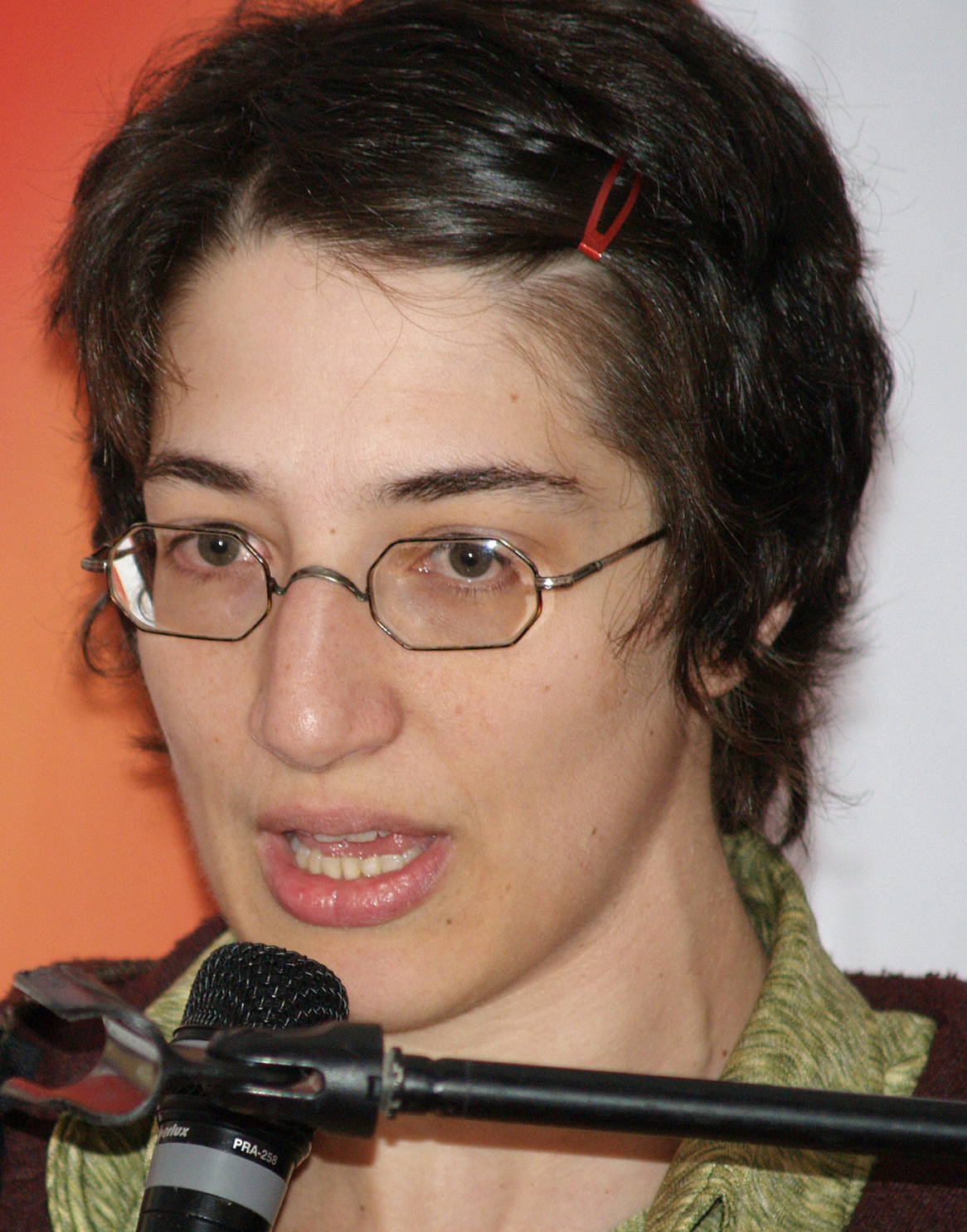
On this date in 1971 author Myla Goldberg was born into a Jewish family, grew up in Laurel, Md., and graduated from Oberlin College in 1993. Her first book, Bee Season, a coming-of-age story about a girl who wins a spelling bee, was published in 2000 and was on The New York Times Notable Book List of 2000. Her other books include Wickett’s Remedy (2006), which chronicles the story of a woman during the 1918 flu pandemic and The False Friend (2010), about a woman returning to her hometown to confront her past. She has also written Time’s Magpie: A Walk in Prague (2004), a compilation of her essays on Prague, and Catching the Moon (2007), a children’s book, along with many other published short stories and writings.
Goldberg sings and plays banjo and accordion in a band called The Walking Hellos. Their first CD was released in 2006. Goldberg is married to Jason Little and has two daughters.
Photo: Goldberg in 2007 at the Brooklyn Book Festival; photo by David Shankbone under CC 3.0.
“I’m a total atheist, and for me it’s just about trying to find something that rises above the banal day-to-day bullshit of living.”
— Goldberg, New York magazine, "In Print: Bee's Buzz" by Boris Kachka (Aug. 7, 2001)
Peter Buck
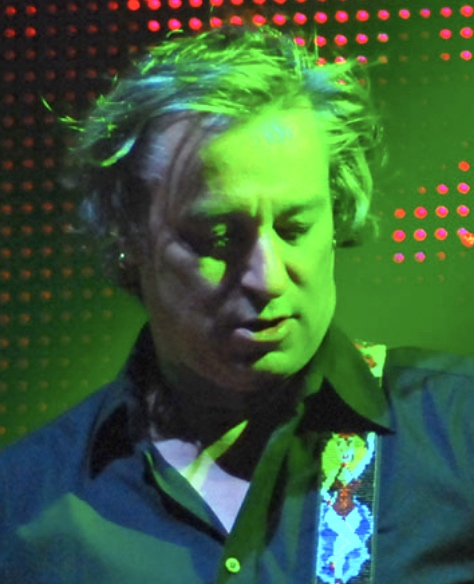
On this date in 1956, musician Peter Lawrence Buck was born in Berkeley, Calif., to Violet and Peter Buck. He grew up in California and Georgia and attended Emory University and the University of Georgia without graduating. He met future R.E.M. bandmates Michael Stipe, drummer Bill Berry and bassist Mike Mills at the university in Athens while Buck also worked at a record store.
They started performing as R.E.M. in 1980. The band never confirmed, and Stipe once denied in sort of a half-hearted way, that the name stood for “rapid eye movement,” the dream stage of sleep when closed eyes dart around under their lids. Before an amicable breakup in 2011, the band sold over 85 million albums and was among the top draws on concert tours.
“They were born of the punk and new wave generation, but there was something comforting and soothing about their music, while still being stimulating. It was Byrds-ian, jangly folk-rock with an aura of mystery in it.” (Rock and Roll Globe, Dec. 6, 2021) “Buck played guitar, bass, banjo and mandolin and was best-known, of course, for those open strings and chiming chords on his Rickenbacker.”
Such was the group’s cultural cachet that a 2001 episode of “The Simpsons” had them playing in Homer’s garage/bar, thinking it was a rain forest benefit. Homer sang along on “It’s the End of the World As We Know It (And I Feel Fine)” before Stipe realized they’d been duped and angrily smashed a beer bottle. Buck admonished him: “That’s not the R.E.M. way,” and they pick up the glass to recycle it. (Ibid.)
“Losing My Religion” from the 1991 album “Out of Time” and featuring Buck’s mandolin became R.E.M.’s highest charting U.S. hit and won two Grammys, including Best Pop Performance. That it wasn’t about religion per se didn’t stop some from embracing it as a sort of nontheist anthem. Stipe said the phrase was a Southern regionalism for “feeling frustrated and desperate,” calling it a classic obsession song about unrequited love.
Buck released several solo albums starting in 2012, joined collaborative projects with other artists and contributed to albums by The Replacements, Billy Bragg, The Decemberists, Robyn Hitchcock, the Eels and others. He has also produced on recordings by several bands.
He married Barrie Greene, owner of Athens’ 40 Watt Club, in 1987 and they divorced in 1994. He has twin daughters, Zelda and Zoe (b. 1994), with his second wife, Stephanie Dorgan. He became a partner in the Crocodile Café, the Seattle music venue she owned and where he often played with his band The Minus 5. They divorced in 2007. He married Chloe Johnson in 2013 in Portland, Ore.
PHOTO: Buck in 2008 at the Lancashire County Cricket Club, Manchester, UK. Photo by Andrew D. Hurley under CC 2.0.
“The only responsibility is to ourselves. If we all found God tomorrow and wanted to do a gospel show, we would do it. I never will — I’m an atheist. But if we drive people away because of the music we’re making or what we’re saying, fine. Don’t come in.”
— Interview, East Coast Rocker magazine (Nov. 30, 1988)
Ira Gershwin
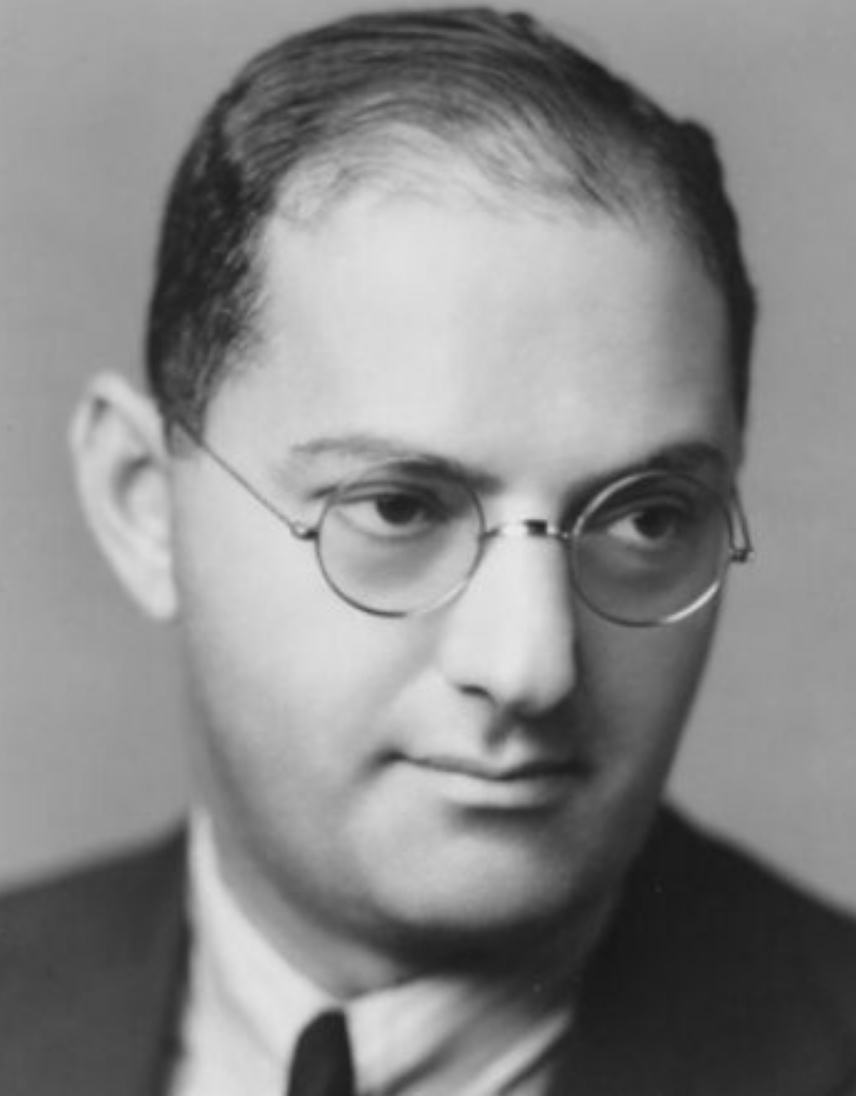
On this date in 1896, Ira Gershwin (né Israel Gershowitz) was born in New York City. He attended the College of the City of New York (1914–16), where he became interested in writing and music. His first foray into writing lyrics for Broadway plays was in 1921 for “Two Little Girls In Blue,” under the pseudonym Arthur Francis. Gershwin, a renowned lyricist, achieved worldwide fame with his brother George.
The Gershwins often composed scores for Broadway plays, including “Lady, Be Good” (1924), starring Fred Astaire, and the popular opera “Porgy and Bess” (1935). Ira Gershwin wrote the lyrics for classic songs such as “ ’S Wonderful” (1927), “I Got Rhythm” (1930) and “Nice Work If You Can Get It” (1937). He continued writing lyrics after George’s death in 1937, collaborating with other well-known composers. In 1932 he was awarded a Pulitzer Prize for his work with the musical “Of Thee I Sing” (1931), making him the first lyricist to earn a Pulitzer.
Gershwin was born to a secular Jewish family that practiced no religious rituals besides Passover. On Sabbaths, Gershwin’s mother made sure to close the curtains so her neighbors would not notice that she had not lit the Sabbath candles. Gershwin seemed to share his mother’s lack of faith. According to Gershwin by Rodney Greenberg (1998), during one Passover, Gershwin “wore a silly top-hat like a vaudeville comedian, and had rewritten the ancient text for maximum comic effect.” In 1935, Gershwin wrote the lyrics for the song “It Ain’t Necessarily So,” which is strongly atheist, ridiculing improbable bible stories such as the story of Jonah. (D. 1983)
“De t’ings dat yo’ li’ble
to read in de Bible
it ain’t necessarily so.”— Ira Gershwin, “It Ain’t Necessarily So” (1935)
Eddie Vedder
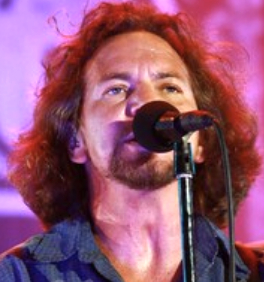
On this date in 1964, singer and lyricist Eddie Vedder (né Edward Louis Severson III) was born in Evanston, Ill. With a rocky home life, which included living with seven foster siblings, Vedder changed his name to his mother’s maiden name when he learned that his father was actually his stepfather. His family in the mid-1970s moved to San Diego but he returned to Chicago to briefly attend community college in the early 1980s.
Musically he was influenced by rock and punk bands such as The Who, The Doors, U2, The Sex Pistols, The Ramones and Black Flag. Vedder in his 20s sang in the bands Bad Radio and Indian Style, with future Rage Against the Machine and Audioslave drummer Brad Wilk. He founded the band Pearl Jam with Mother Love Bone guitarist Stone Gossard and three others in 1990. The band was named for Vedder’s great-grandmother Pearl’s homemade jam. The band released its first album, Ten, in 1991 and it eventually sold 12 million copies.
With its dark lyrics about depression, suicide and angst, Seattle-based Pearl Jam became the band of choice for so-called “Generation X” teens. Anti-mainstream, Pearl Jam refused to produce any videos for its second album, Vs (1993), and canceled its summer 1994 tour when Vedder entered a heated battle with Ticketmaster for charging what he felt were unreasonable fees. The Justice Department sided with Ticketmaster in 1995. Pearl Jam’s third album, Vitalogy (1994), went multi-platinum. The band went on a 1995 European tour with Neil Young and collaborated with him for his 1995 album Mirror Ball.
Vedder made a name for himself unaffiliated with Pearl Jam. He wrote the songs and performed for the popular soundtracks of “Dead Man Walking” (1995), “I Am Sam” (2001) and “Into the Wild” (2007). He is an outspoken environmentalist, vegetarian and pro-choice advocate. Vedder has made his nonbelief widely known. At a July 22, 1998, Pearl Jam concert in Seattle’s Memorial Stadium, Vedder said of the good weather, “I would thank God, but I don’t believe in it.”
In a UK interview with John Robinson, Vedder noted, “[T]he word ‘religion’ has such bad connotations for me, that it’s been responsible for wars, and it shouldn’t be that way at all, it’s just the way the meaning of the word has evolved to me. I have to wonder what we did on this planet before religion.” (New Musical Express, Jan. 17, 1998.)
In 2017 he was inducted into the Rock and Roll Hall of Fame as a member of Pearl Jam. Vedder was ranked at number 7 in 2011 on a list of “Best Lead Singers of All Time” compiled by Rolling Stone. In 1994 he married Hovercraft bass player Beth Liebling. They divorced in 2000. He married his longtime girlfriend, model Jill McCormick, in 2010. They have two daughters, Olivia and Harper.
“People on death row, the treatment of animals, women’s right to choose. So much in America is based on religious fundamentalist Christianity. Grow up! This is the modern world!”
— Vedder interview with The Guardian (Aug. 13, 2009)
Annie Lennox

On this date in 1954, musician and philanthropist Ann “Annie” Lennox was born in Aberdeen, Scotland, to Dorothy and Thomas Lennox. She showed an early talent for music and won a place at the Royal Academy of Music in London when she was 17. There she met guitarist David Stewart. They were both involved in a band called The Tourists but left to form the synth-pop band the Eurythmics in 1980.
The Eurythmics released hit singles throughout the 1980s, including “Sweet Dreams (Are Made of This),” “Would I Lie to You?” and “Here Comes the Rain Again,” selling 75 million albums worldwide.
In 1990 Lennox split from Stewart to launch a solo career. She released the album “Diva,” which included the immensely popular single, “Walking On Broken Glass,” and sold six million copies. In 1995 she released the album “Medusa,” featuring the Grammy-winning single “No More I Love Yous.”
Lennox has won four Grammys as of 2019. In 2004 she won the Academy Award for Best Song for “Into the West” from the film “The Lord of the Rings: The Return of the King,” co-written with Fran Walsh and Howard Shore. Lennox performed the song live at the 76th Academy Awards. The song also won a Grammy and a Golden Globe.
Lennox has also won numerous humanitarian awards for her efforts in raising both money and awareness for the HIV/AIDS epidemic. In 2012 she married her third husband, Mitch Besser. He is an American gynecologist and founder of the HIV/AIDS preventing program Mother2Mother. She was married to German Hare Krishna devotee Radha Raman from 1984-85. She was married to Uri Frutchman, an Israeli film and record producer, from 1988 until their divorce in 2000. They have two daughters, Lola and Tali.
Lennox is not religious and told the Wall Street Journal in December 2010 that she’s “best described as agnostic.” She strongly criticized Pope Benedict XVI in 2009: “If there was ever an example of irresponsibility, it’s the Pope going to Angola, where people are dying because of unprotected sex, and telling them they should abstain. What planet is this person on?”
“So many wars and strife are borne out of opposing religious views. If people don’t have kindness, respect, tolerance, and compassion at the core of their beliefs, then their religion is pointless.”
— Lennox interview, Scottish Daily Record (Oct. 24, 2010)
James Mercer
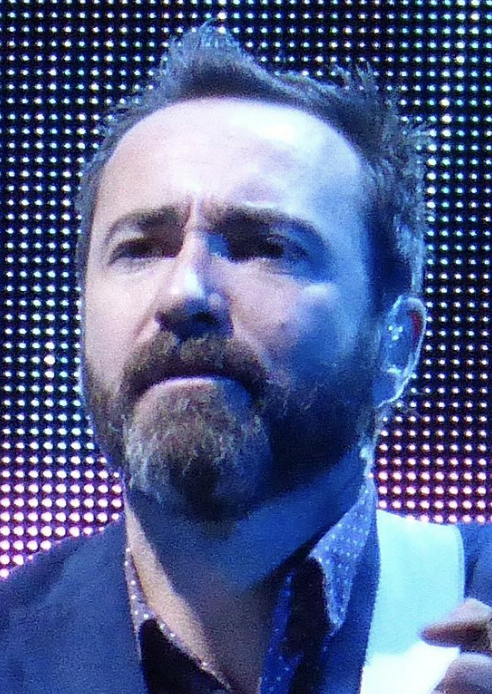
On this date in 1970, musician James Russell Mercer was born in Honolulu, Hawaii. He frequently moved with his family because his father was in the Air Force. Mercer has been an atheist since he was about 10, breaking away from his family’s Catholic faith. “There was a half-assed attempt to give me religion,” Mercer said. “They sent me to a Catholic Sunday school … and they showed me videos of the end of the world. It seemed like a comic book and Satan was just another villain, like Lex Luthor or something. It seemed totally preposterous.” (Magnet magazine, No. 86.)
Mercer’s first break as a musician came with the album “Your Land is Here, It’s Time to Return” with his band Flake Music. This led them to go on tours with bands such as Modest Mouse. Mercer is well known as lead singer and songwriter of the indie band The Shins, which formed in 1996. The Shins’ 2007 album “Wincing the Night Away” was nominated for a Grammy for Best Alternative Music Album and peaked at number two on the Billboard 200 album chart.
Mercer’s indie rock project was named Broken Bells. His co-member was Brian Burton, known as Danger Mouse, who, along with Cee Lo Green, made up the band Gnarls Barkley. Broken Bells’ debut self-titled album was released in 2010 and peaked at number two on the Billboard Independent Albums chart. Mercer’s music has been featured in many movies, including “Garden State” (2004) and “The Amazing Spider-Man” (2012).
He married designer/decorator Marisa Kula in 2006. They have three daughters. Mercer said in a 2012 SPIN interview, “There’s no real reason for me to be so obsessed with trying to understand the true nature of things. You can live a perfectly happy life being utterly confused and not knowing.”
PHOTO: Mercer performing with Broken Bells in 2014 at Coachella. CC 1.0
“I do like talking with friends about big concepts, you know, the stuff that will ruin a party. To me, the party hasn’t begun until we’re talking about the nonexistence of God.”
— Mercer interview with SPIN magazine (February 2012)
John Legend

On this day in 1978, singer-songwriter John Roger Stephens, later known as John Legend, was born in Springfield, Ohio, to Ronald and Phyllis (Jackson) Stephens, respectively a seamstress and a factory worker and National Guardsman. His grandmother taught him to play the piano when he was a child. He sang in the choir at his Pentacostalist church, where his talent was recognized early on. He attended the University of Pennsylvania and after graduating started performing in nightclubs in New York City.
He worked with big-name artists such as Alicia Keys and Jay-Z. His first album, “Get Lifted,” debuted at number 7 on the Billboard 200 in 2004. The album went platinum and earned Legend three Grammy Awards. As of this writing, he has released six studio and several live albums. He co-wrote “Glory,” the theme song for the 2014 film “Selma,” with rapper Common and Rhymefest. It won a Grammy and Golden Globe for Best Original Song in 2015. The Billboard Music Awards named his song “All of Me” the Top Radio Song in 2015.
Legend played Keith in the 2016 movie “La La Land” and co-wrote and performed the song “Start a Fire” for the soundtrack. In 2018 he portrayed Jesus in the NBC adaptation of the Andrew Lloyd Webber/Tim Rice rock opera “Jesus Christ Superstar.” He received a Primetime Emmy nomination for his acting role and won the Emmy for his role as show producer.
He married model Chrissy Teigen in 2013. Their second child was born in 2018. Before a June 2013 performance in London to raise awareness of women’s issues in education, health and justice, Legend said at a press conference, “All men should be feminists. If men care about women’s rights, the world will be a better place.”
PHOTO: Legend at the iHeartRadio Music Awards in Los Angeles in 2019. © Glenn Francis, PacificProDigital.com under CC 4.0
“I grew up in a religious home, but I’m not religious right now. … I saw a lot of hypocrisy. I felt like religion, in a lot of ways, was used to control and subdue people rather than to bring out the best in them sometimes.”
— Legend, BigThink.com profile (Jan. 29, 2008)
